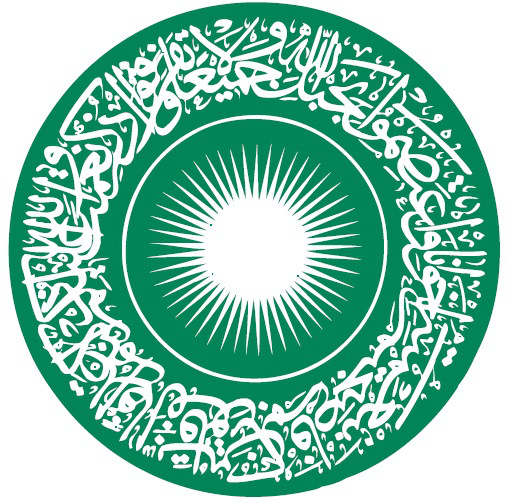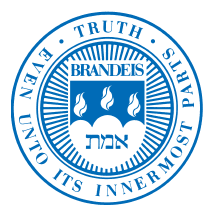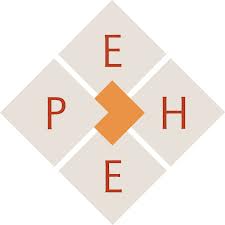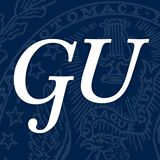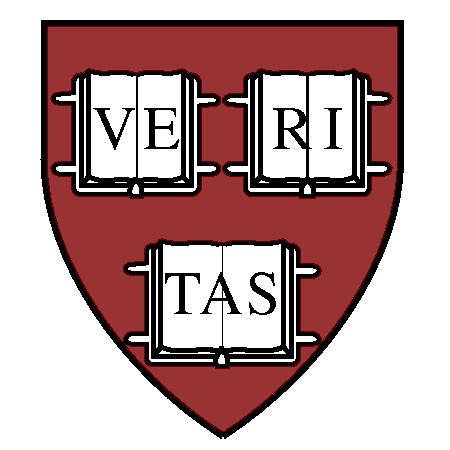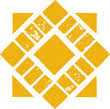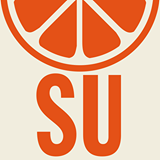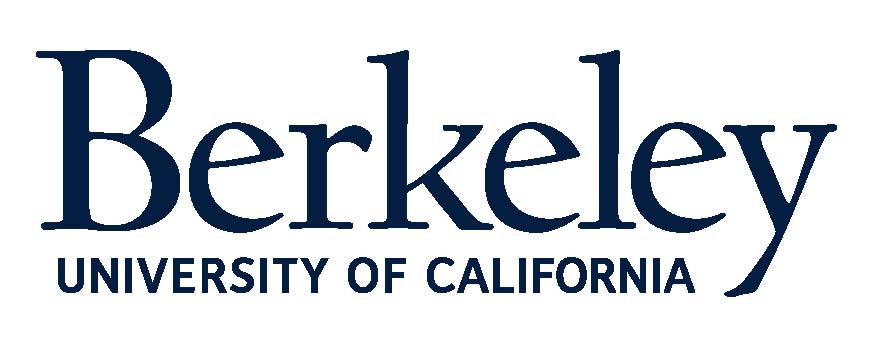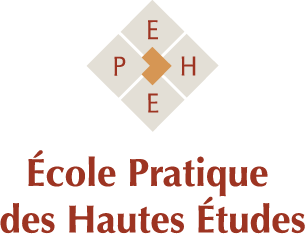Grants to Universities
Roshan Cultural Heritage Institute is proud to partner with the following universities in the United States and abroad to advance Persian Studies. Support has been provided to develop Persian Studies programs, to establish faculty positions, fellowships and scholarships, and to sponsor research projects and cultural programs.

In 2006, Roshan Cultural Heritage Institute supported a two-year research project led by Dr. Sonia Brentjes, Associate Professor at the Institute for the Study of Muslim Civilizations of The Aga Khan University. This initiative focused on Iranians’ identities in Iran and abroad with the following objectives: 1) recording and analyzing the imaginations of individual Iranians with regard to what constitutes the history of Iran; 2) contributing to a more nuanced understanding of the manner in which Iranian identities are constructed under the conditions of a dictatorial state; 3) documenting oral-history data; and 4) participating, academically, in the process of democratization and pluralist opinion formation in Iran. Dr. Brentjes is currently a Research Scholar at the Max Planck Institute for the History of Science in Berlin, Germany.

The Elahé Omidyar Mir-Djalali Professorship of Persian Language was established in 2018 in the School of Middle Eastern & North African Studies, a unit in the College of Social Behavioral Sciences, under the leadership of Dean John Paul Jones, III. The endowment supports a new career-track professorship fully dedicated to the teaching of Persian language courses at all levels.
Roshan Institute Fellowship for Excellence in Persian and Iranian Studies was established in the School of Middle Eastern & North African Studies (MENAS) (formerly Department of Near Eastern Studies) in 2003. It provides financial assistance to outstanding graduate students working towards a graduate degree related to Persian studies at the University of Arizona.
Housed at MENAS, the Program in Persian and Iranian Studies offers four years of Persian language instruction as well as several courses in Persian culture.
In 2018, Roshan Cultural Heritage Institute awarded a grant to the University of Arizona in support of the second North American Conference in Iranian Linguistics (NACIL 2), which will take place on April 19-21, 2019, under the leadership of Dr. Simin Karimi, Professor of Linguistics at the UA. Keynote speakers include Professors Arsalan Kahnemuyipour (University of Toronto), Agnes Korn (Centre National de la Recherche Scientifique, France) and Richard Larson (Stony Brook University). Invited guest speakers are Professors Noam Chomsky (University of Arizona) and Anoop Mahajan (UCLA).
Dr. Narges Nematollahi was appointed as Elahé Omidyar Mir-Djalali Assistant Professor of Persian Language in Fall 2019, after completing a dual Ph.D. in Iranian Studies and Linguistics from Indiana University. Her research focuses on the epistolary tradition in pre-Islamic Iran (composed in Aramaic, Parthian and Middle Persian languages) and how it is transformed in early medieval Iran, under the influence of Arabic. Dr. Nematollahi holds a Master’s degree in Ancient Languages and Cultures from the University of Tehran, Iran, and a Master’s degree in Religion Studies, focused on Zoroastrianism, from the School of Oriental and African Studies, University of London, UK.
In March 2017, Dr. Austin O’Malley was selected as the new Roshan Institute Assistant Professor in Persian and Iranian Studies. He is a scholar of Persian literature, language and culture, whose research focuses on didacticism and rhetoric. Dr. O’Malley received his B.A., M.A. and Ph.D. in Near Eastern Languages and Civilizations from The University of Chicago, and was previously a Lecturer in Persian at Northwestern University.
Roshan Cultural Heritage Institute also supported Professor Talattof’s Persian textbook project entitled “Modern Persian: Spoken and Written” (Volumes 3, 4 and 5) between 2008 and 2013. Professor Talattof is a co-author of the first two volumes published by Yale Press in 2005. This is a series of textbooks designed to teach elementary and intermediate levels of Persian for college students or independent learners.
In 2006, Roshan Cultural Heritage Institute sponsored the visit of Dr. Shirin Ebadi, Distinguished Visiting Faculty in Human Rights, to teach a graduate course on Islam and Human Rights at The Center for Middle Eastern Studies of The University of Arizona. This intensive course investigated the tensions between Islam and Human Rights—both perceived and real—based upon Dr. Ebadi‘s experience as an Iranian judge, lawyer and activist.
On June 17-19, 2005, the “First International Conference on Aspects of Iranian Linguistics” was held at Max Planck Institute for Evolutionary Anthropology, in Leipzig, Germany. This event featured approximately 50 participants including invited speakers Mohammad R. Bateni (Tehran University) and Gilbert Lazard (École Pratique des Hautes Études, Paris). It was organized by Donald Stilo (Max Planck Institute for Evolutionary Anthropology), Simin Karimi (The University of Arizona) and Vida Samiian (California State University, Fresno), and sponsored in part by Roshan Cultural Heritage Institute.
Roshan Institute Fellowship for Excellence in Persian and Iranian Studies recipients at The University of Arizona to date include:
| Year | Name | Area of Study / Dissertation Title |
| 2019-2020 | Robin Brackett | M.A. in Persian and Iranian Studies |
| 2019-2020 | Kacey Evilsizor | Ph.D. in Persian and Iranian Studies |
| 2019-2020 | Sajadeh Hosseini | Ph.D. in Persian and Iranian Studies |
| 2019-2020 | Gianni Izzo | Persian conferences |
| 2019-2020 | Connor Pierce | M.A. in Persian and Iranian Studies |
| 2019-2020 | Shahram Parastesh | Ph.D. in Persian and Iranian Studies |
| 2018-2019 | Kacey Evilsizor | Ph.D. in Persian and Iranian Studies |
| 2018-2019 | Ana Ghoreishain | Ph.D. Minor in Persian and Iranian Studies |
| 2018-2019 | Felisa Hervey | Socio-Political Dimensions in Afghan Women’s Poetry |
| 2018-2019 | Sajadeh Hosseini | Ph.D. in Persian and Iranian Studies |
| 2018-2019 | Zahra Karimi | Ph.D. Minor in Persian and Iranian Studies |
| 2018-2019 | Danielle Kirchoff | Persian conferences |
| 2018-2019 | Connor Pierce | M.A. in Persian and Iranian Studies |
| 2018-2019 | Shahram Parastesh | Ph.D. in Persian and Iranian Studies |
| 2018-2019 | Robin Brackett | M.A. in Persian and Iranian Studies |
| 2017-2018 | Mojtaba Ebrahimian | Persian travelogue |
| 2017-2018 | Kacey Evilsizor | Comparison between Shahnameh and the Secret History of the Mongols |
| 2017-2018 | Zahra Karimi |
Persian language teaching |
| 2017-2018 | Ana Ghoreishian | Iranian cinema |
| 2016-2017 | Mojtaba Ebrahimian | Persian travelogue |
| 2016-2017 | Alyeh Mehin Jafarabadi | Ethnography of English language schools in Mashhad |
| 2016-2017 | Zahra Karimi | Persian language teaching |
| 2016-2017 | Pouye Khoshkhoosani | Persian poetry |
| 2016-2017 | Fardous Rahmani | Persian conference |
| 2016-2017 | Brooke Camareri | Persian conference |
| 2016-2017 | Susan Atchison-Day | Persian conference |
| 2016-2017 | Justin Curtis | Politics in the Persian world |
| 2015-2016 | Mojtaba Ebrahimian | Modern Iranian literature and culture |
| 2015-2016 | Pouye Khoshkhoosani | Persian poetry |
| 2015-2016 | Alyeh Mehin Jafarabadi | Comparative study on sports in the Iranian world |
| 2015-2016 | Zahra Karimi | Persian language teaching |
| 2015-2016 | Robert Nixon | Persian language teaching |
| 2014-2015 | Pouye Khoshkhoosani |
Persian poetry |
| 2014-2015 | Sahar Aghasafari | Achaemenid art applied to fabric |
| 2014-2015 | Mojtaba Ebrahimian | Modern Iranian literature and culture |
| 2014-2015 | Parvaneh Hosseini | Wrestling as the most important traditional national sport of Iran |
| 2014-2015 | Felisa Hervey |
Translation project of Afghan women’s poetry |
| 2013-2014 | Sahar Aghasafari | Achaemenid art applied to fabric |
| 2013-2014 | Jason Watson | Persian humor |
| 2013-2014 | Marie Donovan | Modern Iranian political history |
| 2013-2014 | Mojtaba Ebrahimian | Modern Iranian literature and culture |
| 2013-2014 | Felisa Hervey | Translation project of Afghan women’s poetry (from Persian Dari) |
| 2013-2014 | Zahran Karimi | Persian language teaching |
| 2012-2013 | Jason Watson | Persian humor |
| 2012-2013 | Marie Donovan | Modern Iranian political history |
| 2012-2013 | Kian Alavy | Role of formal language instruction and representation in fashioning Iranian national identity during the 1940s |
| 2012-2013 | Mojtaba Ebrahimian | Modern Iranian literature and culture |
| 2012-2013 | Zahra Karimi | Persian language teaching |
| 2012-2013 | Ana Ghoreishian | An analysis of the documentary Film Four Wives-One Man |
| 2012-2013 | Farrah Jafari | Queer Refuge: Iranian LGBTs in Turkey and the Struggle for Human Rights |
| 2012-2013 | Isra Yaghoubi | Persian Classical Music in Southern California: a Post-Millenium Ethnographic Exploration |
| 2011-2012 | Kian Alavy | Role of formal language instruction and representation in fashioning Iranian national identity during the 1940s |
| 2011-2012 | Ana Ghoreishian | Aiding Israel: How the Iranian media bolsters Pinkwashing |
| 2011-2012 | Anissa Tanwin | Persian language teaching |
| 2011-2012 | Farrah Jafari | Iranian LGBTs in Turkey and the struggle for human rights |
| 2011-2012 | Julie Ellison-Speight | Transnational feminist movement |
| 2011-2012 | Mirela Saykovska | Attitudes of people born since 1979 toward the government, law and Islam |
| 2010-2011 | Julie Ellison | Transnational feminist movement |
| 2010-2011 | William Fulton | Iran’s domestic political system |
| 2010-2011 | Ana Ghoreishian | Portraits of gender in literature from the classical era through 1979 |
| 2010-2011 | Fevziye Johnson | Persian literature with emphasis on 16th century Ottoman court |
| 2010-2011 | Mehrak Kamali | Iranian author Shariar Mandanipour |
| 2010-2011 | Shireen Keyl |
The trends of religiosity among young Iranian adults |
| 2010-2011 | Pouye Khoshkoosani | Rhetoric in relation with some linguistic aspects in poetry |
| 2010-2011 | Mirela Saykovska | Attitudes of people born since 1979 toward the government, law and Islam |
| 2010-2011 | Isra Yaghoubi | Persian classical music in Southern California |
| 2009-2010 | Razi Ahmad | National Self and Narrative of Identity: The Construction of Nationalism in Modern Persian Literature and Film |
| 2009-2010 | Felisa Dyrud | Persian literature, both Iranian and Afghan, including some translation and/or comparative literature projects |
| 2009-2010 | Julie Ellison | A look at the first female newspaper publisher in Iran, Sediqeh Dowlatabadi |
| 2009-2010 | Farrah Jafari | The impact of cyber-culture on Iranian self-image pertaining to youth in Iran |
| 2009-2010 | Fevziye Johnson | Persian literature with special emphasis on 16th century Ottoman court |
| 2009-2010 | Pouye Khoshkhoosani | Rhetoric in relation with some linguistic aspects, which provide a good view of the poets, their style, and their life |
| 2009-2010 | William Fulton | Iran’s domestic political system, particularly the methods by which reformist groups affect change and their relationship with the clerical establishment |
| 2009-2010 | Mirela Saykovska | Attitudes of people born since 1979 toward the government, law and Islam |
| 2009-2010 | Ana Ghoreishian | 1) portraits of gender in literature from the classical era through the constitutional revolution; 2) the intersections of spirituality and social justice in Sufi literature; and 3) the leftist writings for young adults and children that occurred prior to the 1979 Iranian revolution |
| 2008-2009 | Razi Ahmad | Iranian Mass Media and the Media’s role in the 1979 Iranian Revolution |
| 2008-2009 | Julie Ellison | Iranian women’s movement from the turn of the 20th century to modern day |
| 2008-2009 | Mehrak Kamali | The study of cultural differences revealed in literary works produced in Iran as opposed to those written and published in Iranian communities abroad |
| 2008-2009 | Shireen Keyl | The trends of religiosity among young Iranian adults |
| 2008-2009 | Shauna Little | The socio-cultural implications of adoption in Iran, analyzing the legal visibility of orphans in Iran and giving voice to the narrative stories about adoption in post-revolutionary Iranian society |
| 2007-2008 | Razi Ahmad | Iranian Mass Media and the Media’s Role in the 1979 Iranian Revolution |
| 2007-2008 | Mehrak Kamali | Research on writers inside and outside of the country during the 1970s, especially looking at the impact of ruling dominant discourse and ideology influencing Persian literature |
| 2007-2008 | Shireen Keyl | Gender and identity in the under-30 population, a generation removed from the Revolution, and the effects of shifting religious trends on the politics of Iran |
| 2006-2007 | Satoshi Abe | Issues of globalization and technology transfer |
| 2006-2007 | Razi Ahmad | Iranian Mass Media and the Media’s Role in the 1979 Iranian Revolution |
| 2006-2007 | Mehrak Kamali | Research on writers inside and outside of the country during the 1970s, especially looking at the impact of ruling dominant discourse and ideology influencing Persian literature |
| 2006-2007 | Shireen Keyl | Gender and identity in the under-30 population, a generation removed from the Revolution, and the effects of shifting religious trends on the politics of Iran |
| 2006-2007 | Shauna Little | The role of female Basij’s in Iran |
| 2006-2007 | Rebecca Stengel |
The emergence of a dominant Shi’a culture in Iran from the 16th century to the present |
| 2005-2006 | Razi Ahmad | Iranian Mass Media and the Media’s Role in the 1979 Iranian Revolution |
| 2005-2006 | Azita Hojatollah Taleghani | Possessive Constructions in Persian |
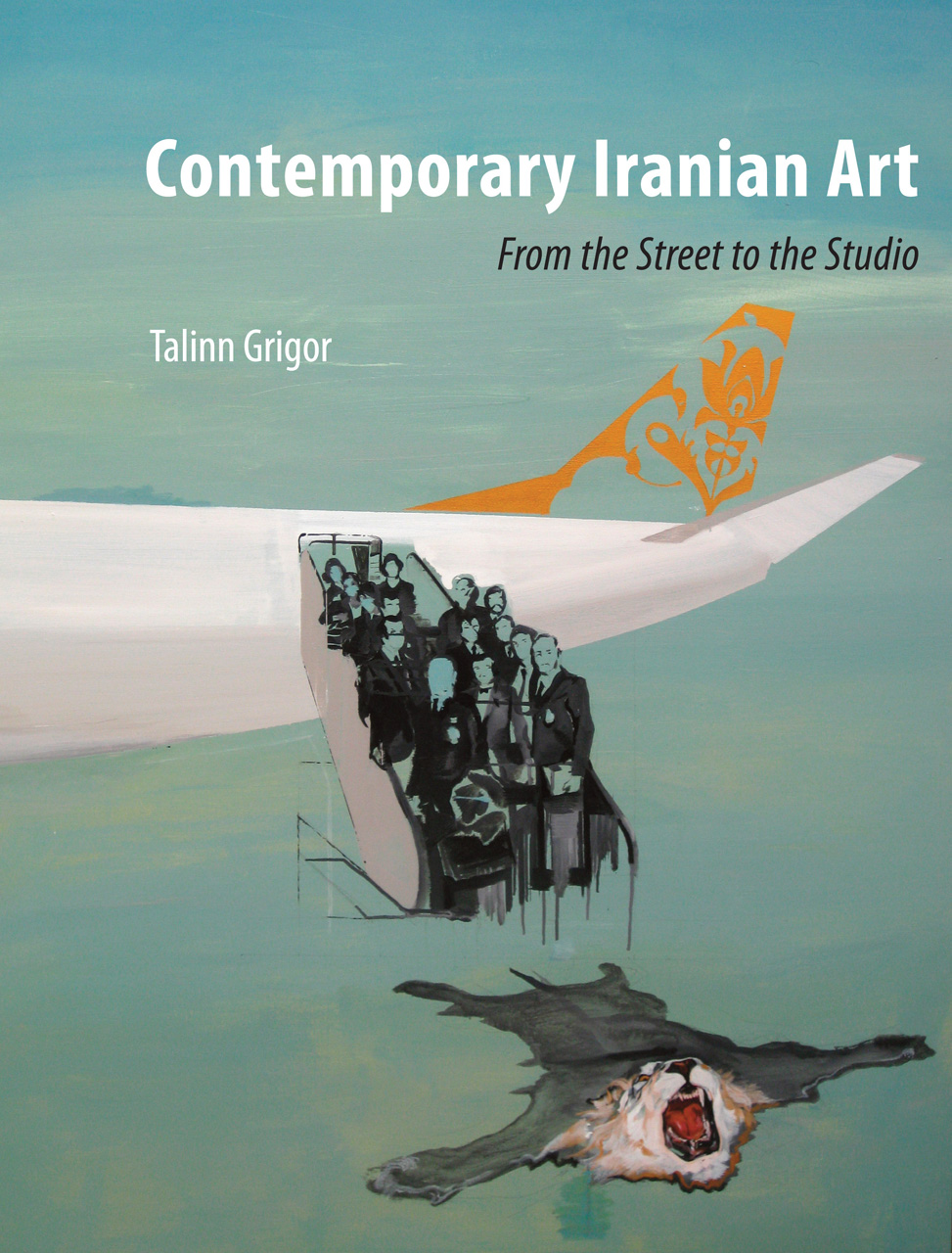 Roshan Cultural Heritage Institute awarded a grant to Brandeis University in support of a fellowship for Dr. Talinn Grigor to publish her new book, Contemporary Iranian Art: From the Street to the Studio (London, Reaktion Books, June 2014), while she was Associate Professor in the Department of Fine Arts at Brandeis. This book is the first single-author, art historical study on contemporary Iranian art and visual culture since the 1979 revolution. Dr. Grigor is currently Professor of Art History at UC Davis, where her research concentrates on the cross-pollination of visual culture and global politics and historiography, focused on Iran and India. She is also a former recipient of Roshan Institute Fellowship for Excellence in Persian Studies in 2003 at MIT.
Roshan Cultural Heritage Institute awarded a grant to Brandeis University in support of a fellowship for Dr. Talinn Grigor to publish her new book, Contemporary Iranian Art: From the Street to the Studio (London, Reaktion Books, June 2014), while she was Associate Professor in the Department of Fine Arts at Brandeis. This book is the first single-author, art historical study on contemporary Iranian art and visual culture since the 1979 revolution. Dr. Grigor is currently Professor of Art History at UC Davis, where her research concentrates on the cross-pollination of visual culture and global politics and historiography, focused on Iran and India. She is also a former recipient of Roshan Institute Fellowship for Excellence in Persian Studies in 2003 at MIT.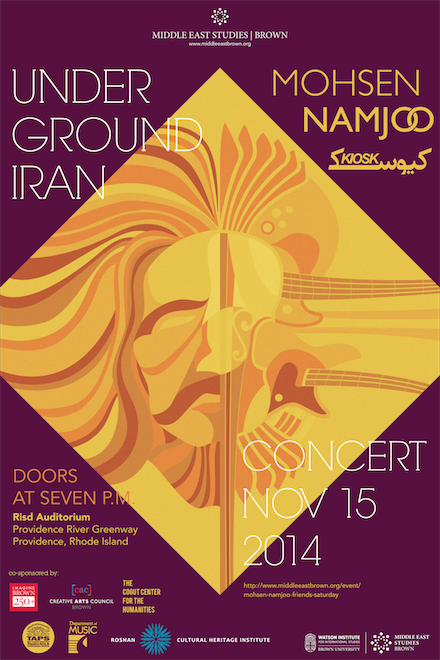 Brown University received a grant from Roshan Cultural Heritage Institute in support of the 2014 residency of Visiting Scholar Mohsen Namjoo, who is an Iranian artist, songwriter, singer, music scholar and setar player. During his residency in the Middle East Studies program at Brown, Namjoo taught courses on Persian music and held musical talks and concerts. The highlight of this initiative was the Iranian music festival entitled “Underground Iran,” held on November 15 at the Rhode Island School of Design Auditorium. It featured, together for the first time on stage, Namjoo and Arash Sobhani (KIOSK). Accompanying this music festival was a panel discussion on November 13 entitled “From Providence to Tehran: Using Music and Performance for Social Change” with Namjoo, KIOSK and Brown faculty, moderated by Professor Beshara Doumani (Director, Middle East Studies). Both events were well attended and live-streamed, reaching an audience beyond the walls of Brown University.
Brown University received a grant from Roshan Cultural Heritage Institute in support of the 2014 residency of Visiting Scholar Mohsen Namjoo, who is an Iranian artist, songwriter, singer, music scholar and setar player. During his residency in the Middle East Studies program at Brown, Namjoo taught courses on Persian music and held musical talks and concerts. The highlight of this initiative was the Iranian music festival entitled “Underground Iran,” held on November 15 at the Rhode Island School of Design Auditorium. It featured, together for the first time on stage, Namjoo and Arash Sobhani (KIOSK). Accompanying this music festival was a panel discussion on November 13 entitled “From Providence to Tehran: Using Music and Performance for Social Change” with Namjoo, KIOSK and Brown faculty, moderated by Professor Beshara Doumani (Director, Middle East Studies). Both events were well attended and live-streamed, reaching an audience beyond the walls of Brown University.
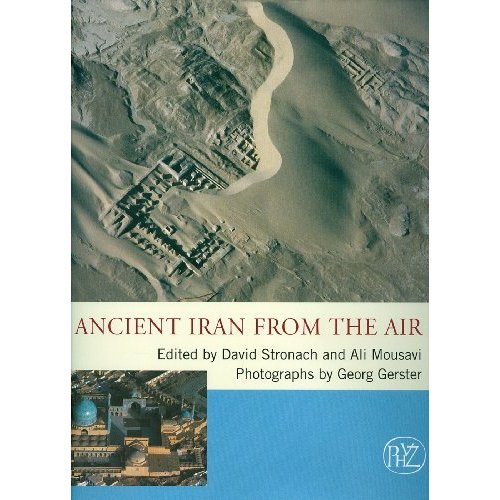 Roshan Cultural Heritage Institute awarded a grant to UC Berkeley’s Professor Emeritus of Near Eastern art and archaeology and renowned archaeologist, David Stronach, for the publication of Ancient Iran from the Air (Philipp von Zabern, 2012). Co-authored by Professor Stronach and Dr. Ali Mousavi (then Curator of Ancient Near Eastern Art at the Los Angeles County Museum of Art), this book takes the reader on an aerial odyssey that explores the country’s infinitely varied landscapes; many of the more noted sites associated with Iran’s rich prehistoric past; the storied capitals of the Achaemenid and Sasanian empires; the memorable monuments of Saljuk and Safavid Isfahan; and, last but not least, on a journey that celebrates the age-old virtues of Iran’s largely unsung vernacular mud-brick architecture. It features photographs taken by the world’s foremost aerial photographer, George Gerster, between 1976 and 1978. Professor Stronach sadly passed away in 2020.
Roshan Cultural Heritage Institute awarded a grant to UC Berkeley’s Professor Emeritus of Near Eastern art and archaeology and renowned archaeologist, David Stronach, for the publication of Ancient Iran from the Air (Philipp von Zabern, 2012). Co-authored by Professor Stronach and Dr. Ali Mousavi (then Curator of Ancient Near Eastern Art at the Los Angeles County Museum of Art), this book takes the reader on an aerial odyssey that explores the country’s infinitely varied landscapes; many of the more noted sites associated with Iran’s rich prehistoric past; the storied capitals of the Achaemenid and Sasanian empires; the memorable monuments of Saljuk and Safavid Isfahan; and, last but not least, on a journey that celebrates the age-old virtues of Iran’s largely unsung vernacular mud-brick architecture. It features photographs taken by the world’s foremost aerial photographer, George Gerster, between 1976 and 1978. Professor Stronach sadly passed away in 2020.
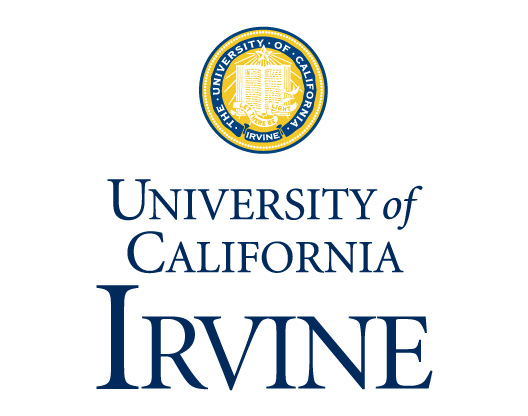
In 2021, an endowment established two doctoral fellowships in the School of Humanities, at UCI – the Elahé Omidyar Mir-Djalali Graduate Fellowship in Ancient Iranian Studies and the Elahé Omidyar Mir-Djalali Graduate Fellowship for the Study of the Persian/Iranian World. The first fellowship supports Ph.D. students who are studying the ancient Iranian/Persian world (550 BCE to 650 CE) and are advised or co-advised by the Elahé Omidyar Mir-Djalali Presidential Chair in Art History & Archaeology of Ancient Iran; the second fellowship is open to students studying the Iranian world in any time period or discipline, in any UCI Ph.D. program that participates in the new Ph.D. concentration in Iranian Studies, expected to be available for student applications in fall 2022.
An endowment for the Elahé Omidyar Mir-Djalali Presidential Chair in Art History and Archaeology of Ancient Iran was established in 2017 in the School of Humanities. The Chair is expected to be a scholar in any or all of the three dynasties of the ancient Persian world: Achaemenid, Arsacid, and Sasanian (550 BCE – 650 CE). In addition to teaching, the Chair will conduct extensive research, author publications, and hold or participate in scholarly conferences and related events. The new faculty member will be housed in the Department of Art History and will collaborate with the Samuel M. Jordan Center for Persian Studies and Culture at UC Irvine.
In July 2018, Professor Matthew P. Canepa was appointed the inaugural Elahé Omidyar Mir-Djalali Presidential Chair in Art History and Archaeology of Ancient Iran. An historian of art, archaeology and religions, his research focuses on the intersection of art, ritual and power in the eastern Mediterranean, Persia and the wider Iranian world. His most recent book, The Iranian Expanse: Transforming Royal Identity through Architecture, Landscape and the Built Environment, 550 BCE-642 CE (University of California Press, 2018) is a study of the natural and built environments of power in Persia and the ancient Iranian world, from the height of the Achaemenids to the coming of Islam. Professor Canepa received his Ph.D. in Art History from The University of Chicago (2004) and previously was Professor and Director of Graduate Studies in the Department of Art History at the University of Minnesota.
In August 2017, Roshan Cultural Heritage Institute awarded a grant to UC Irvine in support of three annual programs: the Elahé Omidyar Mir-Djalali Symposium on Ancient Iranian History and Civilization, the Elahé Omidyar Mir-Djalali Symposium on Persian Language and Literature, and the Elahé Omidyar Mir-Djalali Lectures. The annual programs will be held at the Samuel M. Jordan Center for Persian Studies and Culture, under the leadership of Professor Touraj Daryaee, for three consecutive academic years.
- In academic year 2017-2018: “The Elahé Omidyar Mir-Djalali Symposium on Persian Language and Literature: Persian Literature Unbound” was held on November 10, 2017; “The Elahé Omidyar Mir-Djalali Symposium on Ancient Iranian History and Civilization: Food and Drink in Ancient Iran” convened on May 15, 2018; and the Elahé Omidyar Mir-Djalali Lecture, “Not that Lost in Translation: Sasanian Exgesis of the Avesta,” by Dr. Miguel Angel Andrés-Toledo (Salamanca University) took place on August 5, 2018.
- In academic year 2018-2019: “The Elahé Omidyar Mir-Djalali Symposium on Persian Language and Literature: Roads (Not) Taken, Literary Translation in Iran” was held on December 7, 2018; the Elahé Omidyar Mir-Djalali Lecture, titled “Reorienting Sasanian Textiles: from Wool to Silk beyond TÄq-e BostÄn,” by Dr. Mariachiara Gasparini (UC Riverside/San Jose State University) took place on May 22, 2019; and “The Elahé Omidyar Mir-Djalali Symposium on Ancient Iranian History and Civilization: Persianate Cultures of Power and Global Elite Networks” convened on June 13, 2019.
- In academic year 2019-2020: “The Elahé Omidyar Mir-Djalali Symposium on Persian Language and Literature,” which was focused on Hafez, took place on December 6, 2019; “The Elahé Omidyar Mir-Djalali Symposium on Ancient Iranian History and Civilization,” focused on Zoroaster, and the Elahé Omidyar Mir-Djalali Lecture, which were scheduled to be held in Spring 2020, have been postponed to the Spring 2021, due to the coronavirus pandemic.
Two UC Irvine Ph.D. candidates have each received an Elahé Omidyar Mir-Djalali Fellowship for Excellence in Persian Studies for the completion of their doctoral degrees during academic year 2017-2018. Deanna Kashani will use the fellowship to finish writing her dissertation, “Beyond the Framed Image: Contemporary Iranian Art from Production to Exhibition,” in the Ph.D. Program in Visual Studies; and Soodabeh Malekzadeh will utilize the fellowship to complete her dissertation, “The Sasanian Empire in the Fifth Century: the case of Yazdegerd I and Bahram V,” in the Department of History. Both students completed their doctoral studies in Summer 2018.
Starting the academic year 2015-2016, UC Irvine is offering a Minor in Persian Studies to undergraduate students. Elementary and Intermediate Persian courses are taught by Dr. Soheila Kian, Lecturer in French and Persian.
In June 2015, Dr. Touraj Daryaee, Maseeh Chair in Persian Studies and Culture, was appointed Director of the Samuel M. Jordan Center for Persian Studies and Culture, UC Irvine’s hub for interdisciplinary research projects that bridge the arts, humanities, engineering medicine and the sciences with Persian Studies.
In 2014, Roshan Cultural Heritage Institute awarded a grant to UC Irvine toward a summer fellowship for Soodabeh Malekzadeh, Ph.D. student in the Department of History, to support her dissertation research on the Sasanian era. Entitled “Bahram V: The Romantic Hunter-King or a Judo-Arab Emperor?”, her dissertation covers the Sasanian King’s life and reign, the cultural, military and religious connections and relations of the 5th-century Persian Empire with the Roman Empire, as well as Bahram’s enduring legacy as a romantic hunter-king in Persian literature and art. Ms. Malekzadeh is working under Professor Touraj Daryaee.
In 2013, UC Irvine Maseeh Professor of Persian Performing Arts, Dr. Hossein Omoumi received a grant from Roshan Cultural Heritage Institute for the production of the documentary film, “Classical Persian Music: Hossein Omoumi From Isfahan to Irvine” by Documentary Educational Resources, Inc. Professor Omoumi is a noted musician, scholar and teacher of Persian music. He has performed extensively in the U.S. and in Europe, and recorded several albums. In addition to the film, our grant funded educational materials developed by Professor Omoumi and outreach activities designed to increase interest and promote the beauty of Persian classical music.
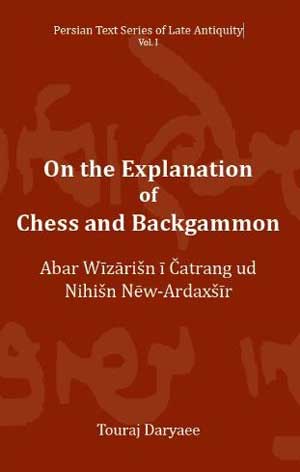 Roshan Cultural Heritage Institute has supported two research initiatives by Dr. Touraj Daryaee, Howard C. Baskerville Professor in the History of Iran and the Persianate World. The first is the Sasanika Project, including the publication of the Sasanika Series, monographs on Sasanian Iran; the publication of the Sasanika Occasional Papers; and an honorarium for scholars abroad (namely those in Iran, Armenia, and Georgia) to submit articles related to Sasanika research. The second is the publication of On the Explanation of Chess and Backgammon, which explains the invention and rules of the games in the sixth century CE, during the rule of the great Sasanian king of kings, Khusro I (531-579 CE). Professor Daryaee’s areas of expertise include late Antiquity and medieval history, and Indo-Iranian languages and culture.
Roshan Cultural Heritage Institute has supported two research initiatives by Dr. Touraj Daryaee, Howard C. Baskerville Professor in the History of Iran and the Persianate World. The first is the Sasanika Project, including the publication of the Sasanika Series, monographs on Sasanian Iran; the publication of the Sasanika Occasional Papers; and an honorarium for scholars abroad (namely those in Iran, Armenia, and Georgia) to submit articles related to Sasanika research. The second is the publication of On the Explanation of Chess and Backgammon, which explains the invention and rules of the games in the sixth century CE, during the rule of the great Sasanian king of kings, Khusro I (531-579 CE). Professor Daryaee’s areas of expertise include late Antiquity and medieval history, and Indo-Iranian languages and culture.

An endowment for the Elahé Omidyar Mir-Djalali Postdoctoral Fellowship in Iranian Linguistics was established in 2017 in the Department of Linguistics. The fellowship carries a term of two years for research in Iranian linguistics, with an optional extension for one additional year. Each Elahé Omidyar Mir-Djalali Postdoctoral Fellow will be offered a paid teaching assignment in the Department of Linguistics, for the period of the fellowship at UCLA.
Roshan Institute Fellowship for Excellence in Persian Studies was established in 2002 to support top graduate students in the Department of Near Eastern Languages and Cultures who are working toward the Ph.D. degree in Iranian Studies. The Ph.D. Program in Iranian Studies encompasses the Persian track (New Persian language, literature, and Islamic philosophy) and the Old Iranian track (languages, literary traditions, history, and religions of Ancient, pre-Islamic, Iran).
In 2016, the endowment for our doctoral fellowship changed its name to Elahé Omidyar Mir-Djalali Fellowship for Excellence in Persian Studies and was moved to the Division of Humanities, in order to benefit the greatest number of top graduate students from across the College of Arts & Sciences working in Persian and Iranian studies. The name change was initiated by UCLA, in recognition of Roshan Cultural Heritage Institute Chair and President, Dr. Elahé Omidyar Mir-Djalali, and her contributions to Persian studies.
In 2017, the UCLA Herb Alpert School of Music was awarded a grant to establish the Elahé Omidyar Mir-Djalali Fund for Iranian Music in support of the Iranian Music Program during academic years 2017-2018 and 2018-2019. The Iranian Music Program was first established by Professor Hormoz Farhat in 1967, but regrettably removed from the curriculum in 1993, due to lack of funding. Our Elahé Omidyar Mir-Djalali Fund for Iranian Music enables UCLA Department of Ethnomusicology Lecturer in Music and former Roshan Institute Fellow, Dr. Amir Hosein Pourjavady, to revive the Persian Music Ensemble classes, and provide students the opportunity to participate in a year-end Persian Music Ensemble Concert.
Elahé Omidyar Mir-Djalali Postdoctoral Fellowship in Iranian Linguistics recipients at UCLA to date include:
| Year | Name | Area of Postdoctoral Research |
| 2018-2020 | Vahideh Rasekhi, Ph.D. |
Syntax of Iranian Languages
|
Elahé Omidyar Mir-Djalali Fellowship for Excellence in Persian Studies recipients at UCLA to date include:
| Year |
Name | Area of Study / Dissertation Title |
| 2020-2021 | Zep Kalb |
The Politics of Labor and Workers’ Protest in Iran |
| 2020-2021 | Zia Khoshsirat |
Anthropology |
| 2019-2020 | Mariam Rahmani | Gender in Translation, Contemporary Iran |
| 2018-2019 | Naveed Mansoori | In Media Res: Media, Representation and Authority in Iran, 1941-2009 |
| 2017-2018 | Naveed Mansoori | In Media Res: Media, Representation and Authority in Iran, 1941-2009 |
Roshan Institute Fellowship for Excellence in Persian Studies recipients at UCLA include:
| Year | Name | Area of Study / Dissertation Title |
| 2014-2015 | Daniel Beckman | Examination of the ways that the Achaemenid Persian empire used written treaties to control the Greek states on the Aegean frontier |
| 2013-2014 | Sahba Shayani | Persian literature and 19th century Persian poetess Fatemeh Zarrin-Taj Baraghani |
| 2012-2013 | Ani Honarchiansaky | Sasanian Empire and Bishop Marutha of Mesopotamia, Ambassador to the Sasanian Court |
| 2011-2012 | Daniel Rafinejad | “I am a Mine of Golden Speech”: Language, Poesy, and the Self in the Philosophical Poetry of Nasir-i Khusraw” |
| 2010-2011 | Ameneh Shervin Emami | The concept of the Utopia and the imagery of Paradise, and philosopher Shihah al-Din Sohravardi |
| 2009-2010 | David Bennett | The claims of the early Mutakallimun (speculative Muslim theologians) reveal their kinship to a family of Materialist natural philosophies |
| 2008-2009 | Ameneh Shervin Emami | The concept of the Utopia and the imagery of Paradise, and philosopher Shihah al-Din Sohravardi |
| 2007-2008 | David Bennett | The development of Natural Philosophy in the Islamic world of the 8th-10th centuries CE |
| 2006-2007 | Daniel Rafinejad | An interdisciplinary approach in examining notions of language, poetry in the work of Naser-e Khosrow and in tracing Naser’s influence on later Persian poets |
| 2005-2006 | Daniel Rafinejad | An interdisciplinary approach in examining notions of language, poetry in the work of Naser-e Khosrow and in tracing Naser’s influence on later Persian poets |
| 2004-2005 | Ahmed Alwishah | “Avicenna’s Philosophy of Mind: Self-Awareness and Intentionality” |
| 2004-2005 | Dalia Yasharpour | Literary analysis and translation to English of “The Prince and the Sufi” |
| 2003-2004 | Amir Hosein Prourjavady | “Textual Analysis of Safavid Musical Sources” |

In 2010, Roshan Cultural Heritage Institute Endowed Professorship was established to support a faculty member who will contribute to the development of the Persian Language and Culture Studies program in the College of Arts & Humanities. Dr. Partow Hooshmandrad, who arrived in Fall 2012, is the initial occupant of the Professorship and teaches in the Department of Music. She is a scholar and musician who specializes in the devotional practices of the Ahl-i Haqq including the musical repertoire, the texts, and the rituals, as well as Iranian classical music.
Roshan Institute Scholarship for Excellence in Persian Studies was created in June 2007 in the College of Arts & Humanities under the leadership of Dean Vida Samiian to encourage the inception and continuation of course offerings in Persian Language and Culture Studies. A social reception, including a performance of Persian classical music, was held in April 2009 to honor the achievements of the first 17 scholarship recipients.
Roshan Cultural Heritage Institute supported the development of Persian Studies at California State University, Fresno early on. In 2008, a grant was provided for programmatic activities in Persian and Iranian Studies.
Roshan Cultural Heritage Institute supported the first annual diversity conference organized by Central Valley Cultural Heritage Institute at CSU Fresno on October 8-11, 2005. It was the first campus-community diversity conference comprising 30 workshops offered by Fresno State faculty, staff, students, and community members.
Roshan Institute Scholarship for Excellence in Persian Studies recipients at CSU Fresno to date include:
| Year | Name |
| 2020-2021 |
Yaneth Montes
Clarissa Avalos
Daisy Soto-Hernandez
Samantha Louie
Salar Mirkarimi
Tatianna Garcia
Madeline De Leon
|
| 2018-2019 |
Alejandra Rodriguez Perez
Carlos Bolaines Alvarado
Clarissa Avalos
Diana Munoz
Fatemeh Samavati
Francisco Abendano
Francisco Padilla
Golnoush Khosravi
Karam Mohsin
Katrina Covarrubias
Majid Farhadloo
Mariah Walstrom
Nakul Gupta
Oeun Maryta
Pardis Safari
Roshanak Farshidpour
Saeid Sandoughi
Safiyya Rasuli
Salar Mirkarimi
Zeyda Romero
|
| 2017-2018 |
Craig Corneal
Angel Negrete
Ivan Ceballos Madrigal
Abdurahman Qasem
Nicholas Jiroudi
Diego Cervantes
Mohammad Angabini
Alexia Torres
Daniel Ashley
Saeid Sandoughi
Crestina Batchelor
Maryada Jain
|
| 2016-2017 |
Ivan Ceballos Madrigal
Samin Mehrafar
Abdurahman Qasem
Diego Cervantes
Ishaq Ali
Michael Ornelas
Blake Ferguson
Peyvand Hajian
Alyssa Hance
|
| 2015-2016 |
Mohammad Angabini
Ghazaleh Bahrami Bidouni
Osamah Bazid
Lauren Chardukian
Kiranjit Dhanjan
Fatehbir Gill
Peyvand Hajian
Rashmeet Kaur
Deanna Martinez
Samim Mehrafar
Mehdi Nazari
Elvis Nunez Rodriguez
|
| 2014-2015 |
Kiranjit Dhanjan
Peiman Hadjian Adel Hafezi Haghani Sami Jassim Deanna Martinez Taylor McCullough-Hunter Samim Mehrafar Mohammadreza Movahedin Mehdi Nazari Marian Soltani Shayan Zoghi Ghazaleh Bahrami Bidouni |
| 2012-2013 |
Mayaprimaver Flores
Jagmeet Singh Alison Natneil Shayan Zoghi Yufei Wang |
| 2011-2012 |
Naseem Akhavan
Mufeed Fathel Alshakhori Mayaprimaver Flores Anita Zahra Kangarlu Layla Karimi-Asl Roya G. Massoudi Tasha S. Nasrollahi James Marston Rayka Salour Ashar Ud Deen |
| 2010-2011 |
Nabil Bazyani
Kamron Lee Emami Jonathan Patrick Hansen Beshoy Haroun Nasim Ravanbakhsh Cyrus Sirang Payaum M. Malekzadeh Shayan Zoghi Sayeh N. Akhavan Amir Reza Arasteh Pour Gita Moazami Goodarzi Dadmehr Lahjehnik Payam Nassirpour Nogol Pedram Shahnaz Shehni Beheschta nasruddinzada
Abdullah Hanifi
Andrew Bethke
Anita Kangarlu
Ana Soltani |
| 2009-2010 |
Mahin Aminian
Ardalan Babakhani Atena Goodarzi Maryam Jamali Dadmehr Lahjenik Payam Nassirpour Andrea Sadredin Ana Soltani Emmanuel Aquino Ahmadreza Beheshti Alireza Hamzavi Yekta Karimi Payaum Malekzadeh Nogol Pedram Shahnaz Shehni Maryam Soltani Amir Reza Arasteh Pour Mona Binesh Neiloufar Heidari Gelareh Khadem Farzad Mazlom Nasim Ravanbakhsh Cyrus Sirang |
| 2008-2009 | Mahin Aminian Ana Soltani Amir Reza Arasteh Pour Matthew F. Lennon Emmanuel Aquino Maryam Soltani Farrokh Elizadi Boroujeni Bahar Madani Neiloufar Heidari Mona Binesh Farzad Mazlom Cyrus Sirang Atena Goodarzi Elnaz Savadizad Saberi |

Roshan Cultural Heritage Institute supported the organization of the conference “Iranian Identity in National, Historical and Global Contexts” at California State University, Los Angeles, on May 27, 2010. This initiative was led by Dr. Afshin Matin-Asgari, Professor of History at CSULA, whose areas of specialization are 20th-century Middle East, modern Iran, and modern Islamic political and intellectual movements. The conference explored the theme of Iran’s “identity,” central both to academic debates and the crisis Iran currently faces due to the clash of contending visions of the country’s national, religious and political character. Over 50 people, including CSULA faculty and students as well as Iranian community members, attended the conference to enjoy lectures and panels presented by ten scholars in Persian Studies .

Roshan Cultural Heritage Institute, in partnership with the Faculty of Oriental Studies at the University of Cambridge and Iran Heritage Foundation, organized a major conference dedicated to the 12th-century Persian poet Nizami of Ganja. The conference, entitled “Nizami Ganjavi – Artistic and Humanistic Aspects of the Khamsa,” took place at the University of Cambridge on September 9-10, 2004. Its emphasis was on the artistic and humanistic aspects of the poet’s work, i.e. narrative stratagems, forms and functions of rhetoric figures, ethical and philosophical concerns, nature description and its function, his lyrical work, psychology and development of the heroes, comparative analyses, sources and influences. The keynote address was delivered by Christoph Buergel, followed by presentations from several scholars.
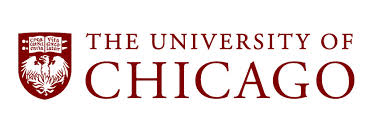
Roshan Cultural Heritage Institute provided a grant to the University of Chicago to award the Elahé Omidyar Mir-Djalali Fellowship for Excellence in Persian Studies to Alexandra Hoffmann, Ph.D. candidate in the Department of Near Eastern Languages and Civilizations, for the completion of her dissertation, entitled “Strong Warriors, Liminal Lovers, and Beardless Men: Male Bodies and Masculinities in Pre-modern Persian Literature,” during academic year 2020-2021.
Roshan Cultural Heritage Institute provided a grant to the University of Chicago to award a Roshan Institute Fellowship for Excellence in Persian Studies to Tytus Mikolajczak, Ph.D. student in the Department of Near Eastern Languages and Civilizations, for the completion of his dissertation, entitled “The Accounting Texts and Seals in the Persepolis Fortification Archive,” during academic year 2016-2017. Dr. Mikolajczak successfully defended his dissertation in March 2018 and currently is Assistant Professor at the Faculty of History, Adam Mickiewicz University, Poland.
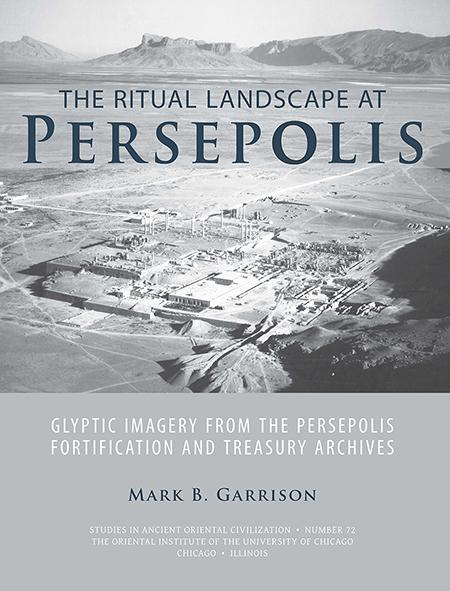 In 2016, a Roshan Institute Fellowship for Excellence in Persian Studies was awarded to Professor Mark Garrison for the publication of his book, The Ritual Landscape at Persepolis: Glyptic Imagery from the Persepolis Fortification and Treasury Archives, by the Oriental Institute, in the series “Studies in Ancient Oriental Civilization.” Alice Pratt Brown Distinguished Professor of Art History at Trinity University, Professor Garrison is the Editor of the Persepolis Fortification Archive project at the Oriental Institute. His book arises from a series of invited lectures he delivered at the College of France in 2009, as the foremost expert on Achaemenid glyptic art. It is a major contribution not only to knowledge of Achaemenid art but also to the documentation and interpretation of Old Iranian religion. The book is available in print or free download.
In 2016, a Roshan Institute Fellowship for Excellence in Persian Studies was awarded to Professor Mark Garrison for the publication of his book, The Ritual Landscape at Persepolis: Glyptic Imagery from the Persepolis Fortification and Treasury Archives, by the Oriental Institute, in the series “Studies in Ancient Oriental Civilization.” Alice Pratt Brown Distinguished Professor of Art History at Trinity University, Professor Garrison is the Editor of the Persepolis Fortification Archive project at the Oriental Institute. His book arises from a series of invited lectures he delivered at the College of France in 2009, as the foremost expert on Achaemenid glyptic art. It is a major contribution not only to knowledge of Achaemenid art but also to the documentation and interpretation of Old Iranian religion. The book is available in print or free download.
In 2015, a Roshan Institute Fellowship for Excellence in Persian Studies was awarded to Professor Mattthew Stolper to complete the Persepolis Fortification Archive (PFA) project at the Oriental Institute. The grant allowed for two students to help with the project during summers 2015-2019, and an additional eight students to work part-time on the project during academic years 2015-2019.
Tytus Mikolajczak, Ph.D. student in the Department of Near Eastern Languages and Civilizations at The University of Chicago, is the first recipient of the Elahé Omidyar Mir-Djalali Fellowship established at the Louvre Museum. During 2014-2015, this fellowship award supported Mr. Mikolajczak‘s study and documentation of more than 300 Achaemenid objects in the collections of the Oriental Institute Museum in collaboration with the Louvre. The Project Directors were: Professor Emeritus Matthew Stolper and Dr. Jack Green (The University of Chicago), Professor Emeritus Pierre Briant (Collège de France) and Yannick Lintz (Louvre).
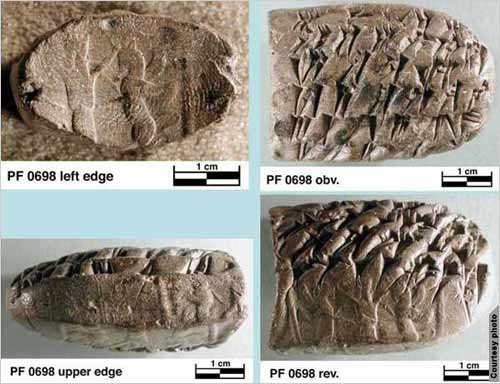 In 2013, Roshan Cultural Heritage Institute awarded a grant to The University of Chicago to support the Persepolis Fortification Archive (PFA) Project at the Oriental Institute, directed by Dr. Matthew Stolper, John A. Wilson Professor Emeritus of Oriental Studies and Professor of Assyriology. The PFA is a group of clay tablets discovered at Persepolis in 1933 by archaeologists from the Oriental Institute and provides an incredible source of information on the languages, art, institutions and history of Achaemenid Persia at its height. This grant allowed the following six students to work on the project during summer 2013: Christina Chandler (University of Colorado); Erin Daly (Notre Dame University); Katherine Livingston (University of Minnesota); Tytus Mikolajczak (The University of Chicago); Emily Wilson (The University of Chicago); and Seunghee Yie (The University of Chicago). The grant also supported work by two returning students, Ms. Chandler and Ms. Daly, during summer 2014.
In 2013, Roshan Cultural Heritage Institute awarded a grant to The University of Chicago to support the Persepolis Fortification Archive (PFA) Project at the Oriental Institute, directed by Dr. Matthew Stolper, John A. Wilson Professor Emeritus of Oriental Studies and Professor of Assyriology. The PFA is a group of clay tablets discovered at Persepolis in 1933 by archaeologists from the Oriental Institute and provides an incredible source of information on the languages, art, institutions and history of Achaemenid Persia at its height. This grant allowed the following six students to work on the project during summer 2013: Christina Chandler (University of Colorado); Erin Daly (Notre Dame University); Katherine Livingston (University of Minnesota); Tytus Mikolajczak (The University of Chicago); Emily Wilson (The University of Chicago); and Seunghee Yie (The University of Chicago). The grant also supported work by two returning students, Ms. Chandler and Ms. Daly, during summer 2014.
In 2011, Hani Khafipour, Ph.D. candidate in the Department of Near Eastern Language and Civilizations at The University of Chicago, received a Roshan Institute Fellowship for Excellence in Persian Studies to support his dissertation, entitled “The Foundation of the Safavid State: Fealty, Patronage, and Ideals of Authority (1501-1576).” Dr. Khafipour completed his degree in August 2013 and is now Lecturer in Iranian Studies at the University of Southern California.
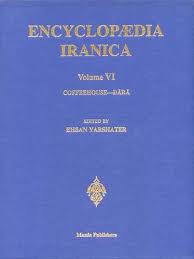 Since 2002, Roshan Cultural Heritage Institute has supported Encyclopædia Iranica, an international collaborative project based at Columbia University, founded by Professor Ehsan Yarshater who was Hagop Kevorkian Professor Emeritus of Iranian Studies until his passing on September 1, 2018. Encyclopaedia Iranica is an academic reference work which aims to cover all aspects of Iranian history and culture as well as all Iranian languages and literatures, thus facilitating the whole range of Iranian studies research from archaeology to political sciences. Its compilation is overseen by the General Editor and a team of internationally renowned scholars of Iranian studies.
Since 2002, Roshan Cultural Heritage Institute has supported Encyclopædia Iranica, an international collaborative project based at Columbia University, founded by Professor Ehsan Yarshater who was Hagop Kevorkian Professor Emeritus of Iranian Studies until his passing on September 1, 2018. Encyclopaedia Iranica is an academic reference work which aims to cover all aspects of Iranian history and culture as well as all Iranian languages and literatures, thus facilitating the whole range of Iranian studies research from archaeology to political sciences. Its compilation is overseen by the General Editor and a team of internationally renowned scholars of Iranian studies.

In 2010, Roshan Cultural Heritage Institute provided a grant to Duke University in support of a Roshan Institute Fellowship for Excellence in Persian Studies for Negar Amir-Haeri to pursue an LL.M. degree from Duke University School of Law. As part of her coursework, Ms. Amir-Haeri researched negotiations between the American and Iranian governments, including the 1979 hostage crisis in the U.S. Embassy in Tehran. Ms. Amir-Haeri received her LL.M. degree in 2011.
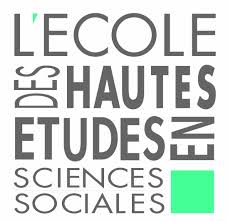
In 2004, Pedram Khosronejad was awarded a Roshan Institute Fellowship for Excellence in Persian Studies to complete his doctoral dissertation at the École des Hautes Études en Sciences Sociales in Paris, France, under the guidance of Professor Thierry Zarcone (CNRS). His dissertation, entitled “Lion Tombstones Among Nomad Bakhtiaris in The South-West of Iran,” focused on how religious and oral beliefs regarding death and dying led to the creation of mortuary material culture and mortuary visual representation. Dr. Khosronejad received his Ph.D.in Social Anthropology-Ethnography in 2007, and is currently Adjunct Professor, Religion and Society Research Cluster, School of Social Science andPsychology, Western Sydney University, Australia.
In 2015, Roshan Cultural Heritage Institute awarded a grant for the publication of Le Coran des Historiens (“the Qur’an of the Historians”) by Professor Mohammad Ali Amir-Moezzi. This project complements Professor Amir-Moezzi‘s earlier publication of the Dictionnaire du Coran. Le Coran des Historiens offers, in three volumes of about 1,000 pages each, a complete and critical synthesis of past works and present research on the origins of the Koran, its formation and appearance, its composition and its canonization. is to provide a general audience with a clear, accessible, yet scientific, rigorous research. This scholarly book was published by the Editions du Cerf in November 2019.
In 2004, Roshan Cultural Heritage Institute awarded a grant to Professor Amir-Moezzi, Director of Study in the Section des sciences religieuses at the École Pratique des Hautes Études (EPHE) in Paris, France, for the publication of the Dictionnaire du Coran (“The Koran Dictionary”). Professor Amir-Moezzi directed this major effort, which was initially published in French (Robert Laffont, 2007) and translated into Italian (2007) and English (2012). The Dictionary’s 1,024 pages contain hundreds of bibliographical references and an exhaustive index making the dictionary an indispensable tool for research and an asset for all libraries. The 500+ entries relate to Koranic data: religious topics, moral and anthropological concepts, elements of nature, characters and figures, historical information, etc. Extra-Koranic data with regards to Islam, such as intellectual and spiritual disciplines (theology, philosophy, exegesis, law, mysticism), history and text filiations, manuscripts, arts and literature, translations, different Koranic schools and their relations to other religions, are also covered

In 2017, Roshan Cultural Heritage Institute renewed its grant to the Language Center at George Washington University in support of activities held during the second annual Persian Cultural Week. The week-long activities, held March 23-30, included a lecture on “Iran and its Splendor,” the screening of Jafar Panahi‘s “Taxi,” poetry readings in Farsi and English, a lecture on “Iranian Women and Society,” and a Noruz night with performances by Kazem Davoudian and GWU Dance Group.
In March 2016, Roshan Cutural Heritage Institute awarded a grant to the Language Center at George Washington University in support of activities held during the first annual Persian Cultural Week in celebration of Noruz. Organized in partnership with GWU Persian program directed by Dr. Pardis Minuchehr, the activities included a lecture on “The Shahnameh in Pop Culture and Media,” a Persian poetry night, a Persian movie night, and a Noruz music concert with Kazem Davoudian, a Santour performer and composer.
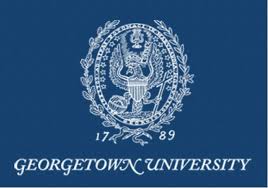
Roshan Cultural Heritage Institute provided a grant to Georgetown University to award a Roshan Institute Fellowship for Excellence in Persian Studies to Nicholas Boylston, Ph.D. student in the Department of Theological and Religious Studies, for the completion of his dissertation, entitled “Writing the Kaleidoscope of Reality: The Significance of Diversity in Sana’i, ‘Ayn al-Qudat and ‘Attar,” during academic year 2016-2017. Dr. Boylston successfully defended his dissertation in August 2017. He is currently Lecturer (half-time) in the Committee on the Study of Religion, Visiting Postdoctoral Fellow at the Center for Middle Eastern Studies, and Visiting Fellow at the Center for the Study of World Religions, at Harvard University.
In June 2006, Roshan Cultural Heritage Institute awarded a grant to the French Department at Georgetown University for the production of an African play called “Sigui, Siguila, Siguiya” written by celebrated Ivorian author and Professor of French and African Studies, Dr. Amadou Koné. The play successfully opened on November 30, 2006 with performances through December 3 at the University’s new Davis Performing Arts Center. The production of this theater project enhances and encourages intercultural communication in conjunction with the mission of the Institute.
In 2002, Roshan Cultural Heritage Institute issued a grant to Georgetown University for the International Language Program and Research.
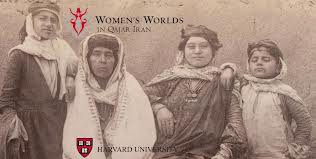 In 2013-2014, Roshan Cultural Heritage Institute provided a grant to Harvard University in support of the Women’s Worlds in Qajar Iran Digital Archive and the creation of the Research Platform that enables and encourages research collaboration and exchange of ideas among scholars and users of the website. Women’s Worlds in Qajar Iran Digital Archive is a comprehensive digital resource that preserves, links, and renders accessible primary-source materials related to the social and cultural history of women’s worlds in Qajar Iran. Led by Dr. Afsaneh Najmabadi, Francis Lee Higginson Professor of History and of Studies of Women, Gender, and Sexuality at Harvard University, it addresses a gap in scholarship and understanding of the lives of women during the Qajar era (1786 – 1925).
In 2013-2014, Roshan Cultural Heritage Institute provided a grant to Harvard University in support of the Women’s Worlds in Qajar Iran Digital Archive and the creation of the Research Platform that enables and encourages research collaboration and exchange of ideas among scholars and users of the website. Women’s Worlds in Qajar Iran Digital Archive is a comprehensive digital resource that preserves, links, and renders accessible primary-source materials related to the social and cultural history of women’s worlds in Qajar Iran. Led by Dr. Afsaneh Najmabadi, Francis Lee Higginson Professor of History and of Studies of Women, Gender, and Sexuality at Harvard University, it addresses a gap in scholarship and understanding of the lives of women during the Qajar era (1786 – 1925).
In 2011, Roshan Cultural Heritage Institute supported Dr. Laetitia Nanquette’s postdoctoral research project at Harvard University on the production, distribution and reception of the Persian novel in the United States and in Iran since 1979. Her work focused on the following three areas and resulted in scholarly articles: the literary field in Iran, the Persian novel in the U.S. and the literary links between Iran and the U.S., with each area resulting in a scholarly article. Dr. Nanquette is currently a Lecturer and Australian Research Council DECRA Fellow in the School of the Arts and Media at the University of New South Wales in Sydney, Australia.
The Harvard Iranian Oral History Project is a collection of personal accounts of many of Iran’s most important and influential political leaders of the latter half of the twentieth century. Roshan Cultural Heritage Institute is proud to be a sponsor of this project. In 2005, funding was provided to digitize the collection by transforming the audio recordings and transcripts into a stable, permanent electronic format that will be stored at Harvard Library’s Digital Repository. The Repository technicians will take responsibility for the technical upkeep of the files and make them available on the Internet to a worldwide audience.

A grant from Roshan Cultural Heritage Institute supported the establishment of a Persian Language, Linguistics, and Culture Program (2013-2018) at the University of Hawaii at Manoa, in the College of Languages, Linguistics, and Literature. It provided support for Roshan Institute Instructor in Persian Language and Culture as well as Roshan Institute Fellowship in Persian Linguistics, Language Acquisition and Applied Linguistics for students pursuing Ph.D. degrees in Linguistics and Second Languages Studies, and Roshan Institute Fellowship for Persian Language and Culture for graduate students enrolled in Persian language and culture courses. This program contributed to a better understanding of Persian language, linguistics and culture, not only by teaching the students about Persian language and culture, but also through research generating new knowledge about the Persian language.
Dr. Ladan Hamedani was Roshan Institute Instructor in Persian Language and Culture from August 2013 to August 2018. She received her Ph.D. in Linguistics from the University of Ottawa and has held faculty positions at McGill University and Islamic Azad University. She was teaching courses in Persian language, literature and introductory culture courses.
In 2020, Roshan Cultural Heritage Institute awarded the Elahé Omidyar Mir-Djalali Fellowship for Excellence in Persian Studies to Parvaneh Rezaee, a Ph.D. candidate in the Department of Second Language Studies at UHM, for the completion of her doctoral dissertation,“The Persian Particle dige in Professional – Client Interaction,” in academic year 2020-2021.
In 2018, Roshan Cultural Heritage Institute awarded the Elahé Omidyar Mir-Djalali Fellowship for Excellence in Persian Studies to Elham Monfaredi, a last year Ph.D. candidate in the Department of Second Language Studies at UHM, for the completion of her doctoral dissertation, “Storytelling in Persian Language Classrooms: A Conversation Analytic Perspective,” in academic year 2018-2019. Dr. Monfaredi successfully completed her Ph.D. in Second Language Studies in August 2019.
In 2016, Roshan Cultural Heritage Institute awarded a second grant to Maseeh Ganjali for field research on traditional Iranian puppetry, as part of his doctoral studies in the Department of Theater and Dance at UHM.
Since fall 2015, Persian language is offered as an online course at the University of Hawaii at Manoa. PERS 101: Beginning Modern Persian 1 is designed for distance learning, attracting learners who do not have Persian instruction at their universities.
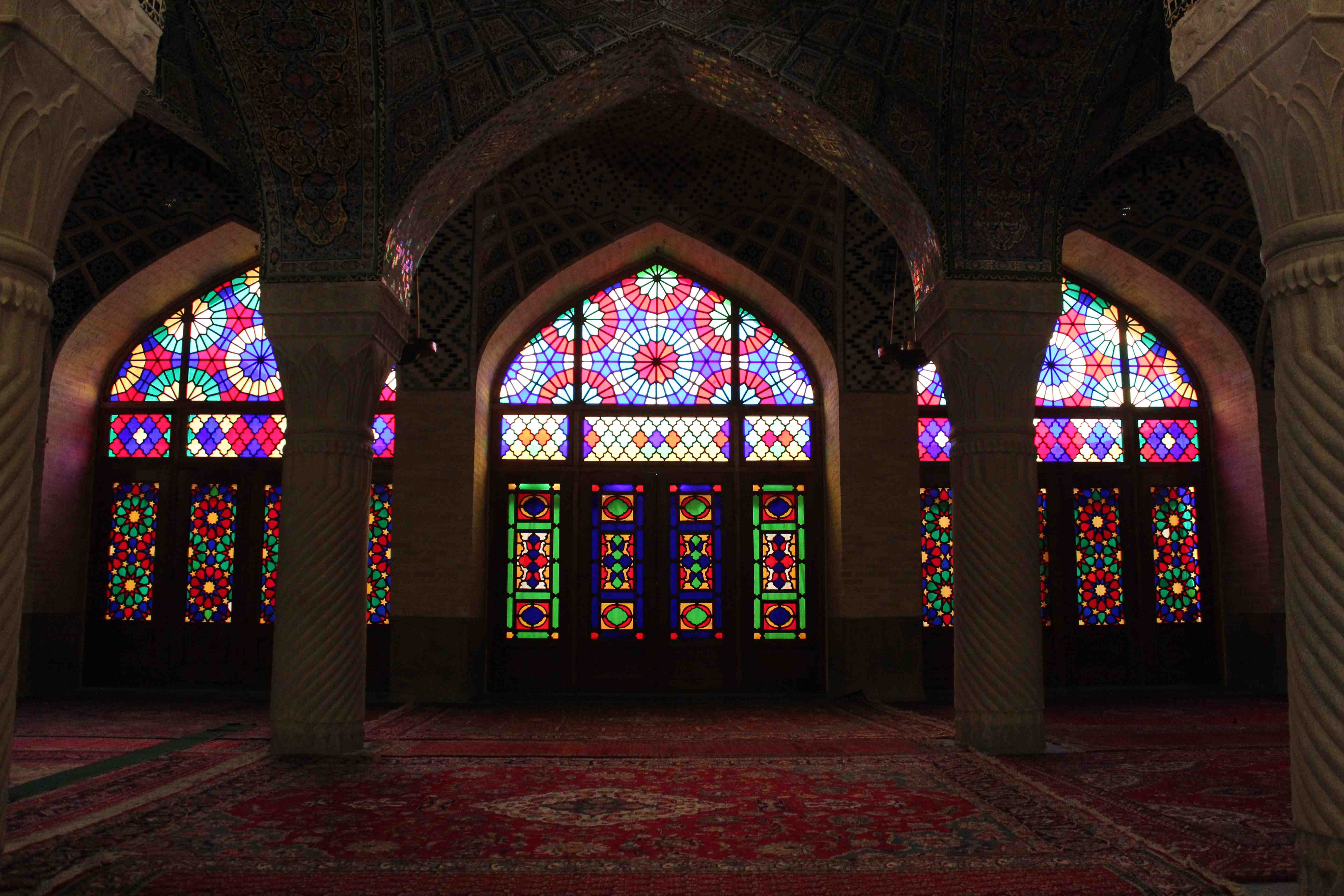 In 2011, Roshan Cultural Heritage Institute awarded a grant to Maseeh Ganjali for field research, a film presentation and a photography series, while he was an undergraduate student in the Department of Theater and Dance at UHM. His exhibit “COMMON PEOPLE, COMMON PLACES ~ Photographs from Iran” was showcased at the University’s Hamilton Library during spring and summer 2012 and is followed by “Zoorkhane: House of Strength” in summer and fall 2014.
In 2011, Roshan Cultural Heritage Institute awarded a grant to Maseeh Ganjali for field research, a film presentation and a photography series, while he was an undergraduate student in the Department of Theater and Dance at UHM. His exhibit “COMMON PEOPLE, COMMON PLACES ~ Photographs from Iran” was showcased at the University’s Hamilton Library during spring and summer 2012 and is followed by “Zoorkhane: House of Strength” in summer and fall 2014.
Roshan Institute Fellowship in Persian Linguistics, Language Acquisition and Applied Linguistics recipients at the University of Hawaii at Manoa included:
| Year | Name | Area of Study / Dissertation Title |
| 2015-2017 | Parvaneh Rezaee | Ph.D. program in Second Language Studies |
| 2014-2017 | Elham Monfaredi |
Ph.D. program in Second Language Studies |
The recipients of Roshan Institute Fellowships for Persian Language and Culture at the University of Hawaii at Manoa were:
| Year | Name | Area of Study / Dissertation Title |
| 2017 (Spring) | Kyle Normand | Second Language Studies |
| 2017 (Spring) | Matthew White | Global and Comparative History |
| 2016 (Fall) | Francisco Valenzuela | Persian and History programs |
| 2016 (Fall) | Kevin Harrison | Persian and History programs |
| 2016 (Spring) | Kamron Yazdani | Persian and Business programs |
| 2016 (Spring) | Erika Enomoto | Diaspora artists |
| 2016 (Spring) | Kavon Hooshiar | Persian and Linguistics programs |
| 2016 (Spring) | Richard Forster | Persian and History programs |
| 2015 (Fall) | Anthony Jenkins | Persian and Chinese programs |
| 2015 (Fall) | Ryan Joslin | Persian, Political Science and Economics |
| 2015 (Fall) | Caroline Canavan | Geophysics and Persian |
| 2015 (Spring) | Richard Forster | Persian and History programs |
| 2015 (Spring) | Kavon Hooshiar | Persian and Linguistics programs |
| 2014 (Fall) | Richard Forster | Persian and History programs |
| 2014 (Fall) | Kavon Hooshiar | Persian and Linguistics programs |
| 2014 (Spring) | Richard Forster | Persian and History programs |
| 2014 (Spring) | Kavon Hooshiar | Persian and Linguistics programs |

Roshan Institute Fellowship and Scholarship for Excellence in Persian Studies
Elahé Omidyar Mir-Djalali Lecture Series and Cultural Programs
Roshan Cultural Heritage Institute provided major funds to advance Persian Studies at the University of Maryland and to establish Roshan Institute for Persian Studies (formerly known as “Roshan Institute Center for Persian Studies”). Major elements of this support include: Roshan Institute Chair in Persian Studies, Roshan Institute Lecturer in Persian Studies, Roshan Institute Fellowships and Scholarships for Excellence in Persian Studies, and Elahé Omidyar Mir-Djalali Lecture Series and Cultural Programs.
Roshan Institute for Persian Studies at the University of Maryland aspires to be the premier center for the learning, understanding, and appreciation of Persian culture in the United States. Toward this end, the Institute seeks to provide outstanding course offerings and programs in Persian language, literature, history, and culture; to foster communication and community ties among people of Persian heritage and those interested in Persian studies; and to serve as a model for encouraging intercultural communication among peoples of varying backgrounds.
Professor Fatemeh Keshavarz is Roshan Institute Chair in Persian Studies and Director of Roshan Institute for Persian Studies since Fall 2012. She is also Director of the School of Languages, Literatures, and Cultures since August 2014. She taught at Washington University in St. Louis for over twenty years where she chaired the Department of Asian and Near Eastern Languages and Literatures until 2011. She is a scholar, award-winning author, poet and activist.
In 2020, Dr. Marjan Moosavi was appointed Roshan Institute Lecturer in Persian Studies. She holds a Ph.D. in Theatre and Performance Studies from the University of Toronto’s Centre for Drama, Theatre and Performance Studies where she trained in the theory and craft of theatre-making, dramaturgy, and diasporic performances. Dr. Moosavi has served as a faculty member and designed curricula for the University of Toronto, York University (Canada), Portland State University (U.S.A), and Parand Azad University (Iran).
The Elahé Omidyar Mir-Djalali Lecture Series was launched in March 2017, for Noruz, at an event featuring the documentary film, “Classical Persian Music: Hossein Omoumi from Isfahan to Irvine,” funded by Roshan Cultural Heritage Institute. Following the screening was the concert, “Voices for Spring,” by UC Irvine Professor Hossein Omoumi (Roshan Institute Fellow, 2014) and musicians Jessika Kenney, Amir Khoushkani and Hamin Honari.
In 2015, Roshangar: Roshan Undergraduate Persian Studies Journal was launched as a biannual academic publication. The journal is designed and run by a group of talented undergraduate students, under the guidance of former Roshan Institute Fellow, Dr. Ida Meftahi, Visiting Assistant Professor at Roshan Institute for Persian Studies.
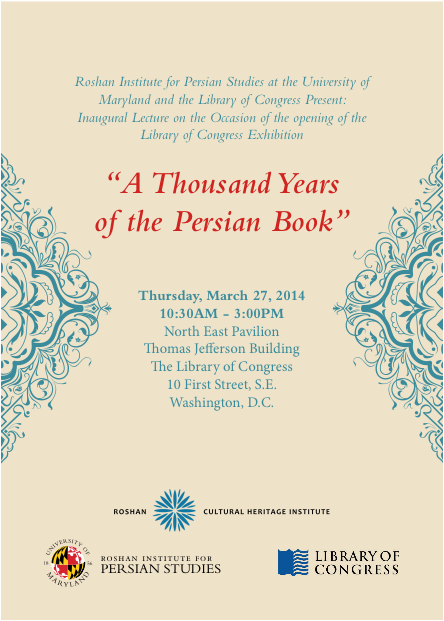 Roshan Cultural Heritage Institute also provided a grant to UMD to support the six-month long series of academic presentations designed by Professor Keshavarz to accompany the exhibit “One Thousand Years of the Persian Book” held at the Library of Congress from March 27 – September 20, 2014. The inaugural lecture “Illustrating the Persian Book: The Happy Marriage of Literary and Visual Narrative” by Professor John Renard (Saint Louis University) and panel discussion with Professor Renard, Professor Keshavarz and Dr. Amy Landau (Walters Art Museum) took place on March 27. This event was followed by lectures on various subjects related to the Persian book delivered by twelve other renowned scholars between April and September.
Roshan Cultural Heritage Institute also provided a grant to UMD to support the six-month long series of academic presentations designed by Professor Keshavarz to accompany the exhibit “One Thousand Years of the Persian Book” held at the Library of Congress from March 27 – September 20, 2014. The inaugural lecture “Illustrating the Persian Book: The Happy Marriage of Literary and Visual Narrative” by Professor John Renard (Saint Louis University) and panel discussion with Professor Renard, Professor Keshavarz and Dr. Amy Landau (Walters Art Museum) took place on March 27. This event was followed by lectures on various subjects related to the Persian book delivered by twelve other renowned scholars between April and September.
Roshan Institute Fellowship for Excellence in Persian Studies recipients at the University of Maryland to date include:
| Year | Name | Area of Study / Dissertation Title |
| 2019-2020 | Kioumars Mazandarani Haeri | Theater and Performance Studies |
| 2019-2020 |
Nahid Ahmadian |
Contemporary Iranian Literature |
| 2018-2019 | Kioumars Mazandarani Haeri | Theater and Performance Studies |
| 2017-2018 | Kioumars Mazandarani Haeri | Theater and Performance Studies |
| 2016-2017 | Kioumars Mazandarani Haeri |
Theater and Performance Studies |
| 2016-2017 | Niloo Sarabi | Contemporary Iranian women’s literature |
| 2016-2017 | Homira Pashai | Curriculum and Instruction with Specialization in Persian Language |
| 2016 (Spring) | Payman Vafaee | Second language acquisition with emphasis on Persian language learners |
| 2015-2016 | Niloo Sarabi | Contemporary Iranian women’s literature |
| 2014-2015 | Abbas Jamshidi | Arabic representation in Persian and English literature |
| 2013-2014 | Safoura Nourbakhsh | “Gender and Sexuality in Persian expressions of Sufism” |
Roshan Institute Scholarship for Excellence in Persian Studies recipients at the University of Maryland to date are:
| Year | Name | Area of Study |
| 2016-2017 | Devon Tobar | Persian Studies |
| 2016-2017 | Jasper Surrett | Persian Studies |
| 2015-2016 | Joseph Ritch | Persian Studies |
| 2015-2016 | Mitra Namiranian | Persian Studies |
| 2015-2016 | Matthew Hermane | Persian Studies |
| 2014-2015 | Joseph Sammarco | Persian Studies |
| 2014-2015 | Ashley Kiani | Persian Studies and Business Administration (double major) |
| 2013-2014 | Krithi Ramaswamy | Persian Studies (minor) |
To date, a variety of Persian cultural activities have been organized by Roshan Institute for Persian Studies:
2019
- “Cherishing Kurdistan Heritage,” an event including talks about the history and culture of Kurdistan, Kurdish language in Iran, and literary figures of Kurdish origin, followed by a musical performance, poetry, and Kurdish dance
- Lecture by Naghmeh Samini on “I Have a Body, Therefore I Am: Semiotics of Female Corporality in Films by Iranian Women”
- “Love has a Beginning but no End,” a musical tribute to Sa’di of Shiraz (1210-1291) with Professor Fatemeh Keshavarz and Ostad Behrad Tavakoli & his Ensemble
- Elahé Omidyar Mir-Djalali Lecture by Professor Nasrin Rahimieh (UC Irvine) on “The Latest Iranian Women Writers: What We Expect, What We Find in Their Works”
- “The Spirit of Nowruz: One Family, One Song” documentary, followed by a Q&A session and book signing by producer, Farzin Rezaeian, as part of the Elahé Omidyar Mir-Djalali Lecture Series, presented in collaboration with the Georgetown Persian Language and Culture Program
- Elahé Omidyar Mir-Djalali Lecture by Professor John Renard on “A Life in Miniatures: Visual Hagiography of Rumi”
- Lecture by Dr. Sarah Savant on “How Were So Many Arabic Authors So Prolific?”
- Rumi Day workshop
- Shadow play, 1001st Night, presented by director and screenwriter, Bahram Beyzaie
- Celebration of the Life and Legacy of Professor Ehsan Yarshater (1920-2018)
- Persian calligraphy workshop presented by Dr. Navid Bazargan
- Lecture by Beeta Baghoolizadeh on “The Color of Slavery in Iran”
- “Listen to the Reed!” a mystical poetry and music event in Persian and English
- “Interwoven Voices: Persian Poetry & Music,” an Elahé Omidyar Mir-Djalali Cultural Program with Professor Fatemeh Keshavarz and vocalist Jessika Kenney
- Elahé Omidyar Mir-Djalali Lecture by Dr. Mohammad Gharipour on “Paradeisos: Origins and Historical Development of Persian Gardens”
- Lecture by Dr. Emad Khazraee on “Persian Twitter: A Transforming Social Media Landscape”
- Workshop on “Manuscript Preservation in Modern India: New Techniques and Strategies for Caring for Collections”
2017
- Screening of “The Razor’s Edge, The Legacy of Iranian Actresses” followed by Q&A with film director, Dr. Bahman Maghsoudlou
- Exhibit, “Through the Lens of Ethnicity: Images of Iranian Women,” showcasing images by Master Nasrollah Kasraian
- Lectures by Dr. Jaffer Sheykholislam on “Persian is Sugar” and on “Language Policy and Planning in Iran: A Critical Evaluation”
- Publication of the third issue of Roshangar: Roshan Undergraduate Persian Studies Journal in Fall
- Lecture by Dr. Shai Secunda on “The Iranian Talmud: Locating the Babylonian Talmud in the Sasanian Empire”
- Lecture by Dr. Miriam Crooke on “Dancing in Damascus: Creativity and Resilience in the Syrian Revolution”
- Screening of “Under the Smoky Roof” followed by Q&A with film director, Pouran Derakhshandeh
- “Cherishing Lorestan and Bakhtiary Heritage,” an event including talks about the history and culture of the Lors and the Bakhtiaries, followed by video presentations, musical performances, dances and hand-craft exhibitions.
- Lecture by Dr. Roman Seibertz on “A Fifth Column of Nazi Imperialism? The German Community in Iran before 1941”
- Lecture and book signing by Trita Parsi on his book, “Losing an Enemy-Obama, Iran and the Triumph of Diplomacy”
- Publication of the second issue of Roshangar: Roshan Undergraduate Persian Studies Journal in spring
- Creative writing workshop with Writer and Filmmaker, Samaneh Gazar
- Multidisciplinary conference on Middle Eastern, with panels on “Iranian TV: Reflection of the State,” chaired by Professor Fatemeh Keshavarz, with Dr. Ida Meftahi presenting “Lalehzar Street Re-Imagined: From Hizar Dasatan to Sharhrzad”
- Talk by Professor Fatemeh Keshavarz on “Love and Rationality in Rumi’s Poetry”
- Launch of Elahé Omidyar Mir-Djalali Lecture Series featuring screening of the documentary film, “Classical Persian Music: Hossein Omoumi from Isfahan to Irvine,” followed by “Voices for Spring,” a performance by Professor Hossein Omoumi
- Lecture by Columba Stewart, OSB, on “Giving Voice to Ancient Texts: Digital Preservation and Access for Endangered Manuscripts from Threatened Communities”
2016
- Lecture and performance by Roya Duet, “Understanding multicultural identity through artistic expression”
- “A History of Persian Poetry: Preliminary Remarks,” an event celebrating the Life Achievements of Professor Ahmad Karimi-Hakkak
- Lecture and book signing by Dr. Hamid Dabashi on his book, “Persophilia: Persian Culture On The Global Scene”
- Manuscripts in the Digital Age Workshop
- Screening of “Abbas Kiarostami: A Report” followed by a ceremonial planting of a cherry tree in memory of Abbas Kiarostami and a panel discussion with film producer and director, Bahman Maghsoudlou
- Lecture and book signing by Dr. Fred Starr on his book, “Lost Enlightenment: Central Asia’s Golden Age from the Arab Conquest to Tamerlane”
- Screening of “Children’s Song Writer: the Life and Work of Abbas Yamini Sharif” followed by Q&A on children’s literature by Homan Yamini Sharif, producer
- Lecture and book signing by Professor Fatemeh Keshavarz on her new book “Lyrics of Life”
- Lecture “Princesses Who Protest: Women Poets of Medieval Iran” by Professor Dick Davis
- Lecture “Digital Humanities & the Premodern Islamic World” by Maxim Romanov, Research Fellow, University of Liepzig
- Screening of “Frame by Frame” followed by discussion with film producer Baktash Ahadi
- Workshop on the “Use of Rumi poetry in modern mindfulness practices” with Shefalika Gandhi
- Brown Bag Series featuring Shahram Karimi, Iranian artist and film director, on the topic of visual art and cinema
- The Persian Book Lecture Series: “An Anthology of Philosophy in Persia” with Dr. Seyyed Hossein Nasr and Dr. Mehdi Aminrazavi; “Embodying the Beloved: (Homo) eroticism and Embodiment in Medieval Sufism” by Matthew Thomas Miller
- Lecture “The Art of Book Making: Lithography Printing in Iran” by Dr. Mahbobe Ghods
- Lecture “Iran’s Entrepreneurial Spirit” by adjunct professor Shahab Kaviani
- Lecture “New Trends in the Political History of the Great Saljuqs” by Dr. David Durand-Guédy
- Lecture and workshop on Persian calligraphy by Sussan Haghighat
- Lecture “Coffee Houses in Late Qajar Iran” by Dr. Negin Nabavi
- 2015 Ehsan Yarshatre Lecture Series featuring Dr. Farzaneh Milani
- Lecture “Art and Culture of Ghashghai Iranian Tribes” by Dr. Ashkbous Talebi
- Lecture “When the genius lies elsewhere: Mir ‘Ali Tabrizi and the ‘invention’ of the nasta’liq script” with Dr. Simon Rettig
- Movie Series: “Border Café,” “The Wind Carpet,” and “Tehran Has No More Pomegranates”
- Brown Bag Series with Dr. Pedram Partovi, Dr. Amy Landau, Dr. Navid Bazargan and Shahla Nikfal
- Poetry Nights dedicated to Simin Behbahani and Gheysar Aminpour
- Lecture “The World of Persian Literary Humanism: Spreading Culture through Books” by Professor Hamid Dabashi
- Lecture “Modern Literature in Afghanistan: Contributions to the Persian Book” by Professor Wali Ahmadi
- Lecture “Forough Farrokhzad’s Biography and Unpublished Letters” by Professor Farzaneh Milani
- Lecture “The Persian Book in Pre-Modern Turkey” by Professor Ahmet Karamustafa
- Lecture “The Printing Press as an Agent of Tradition in Iran: Revisiting Elizabeth Eisenstein’s The Printing Press as an Agent of Change” by Professor Ulrich Marzolph
- Lecture “Librarians, Patrons and Poets” by Dr. Amy Landau
- Presentation “Fighting Pediatric Cancer in Iran” by Saideh Ghods
- Lecture “The Persian Book: Animation & Illustration” by Rashin Kheiriyeh
- Lecture “Women Words and Painted Pictures: The Persian Book in India” by Dr. Sunil Sharma
- Lecture “When Ink and Color Meet: The Art of Painting in the Shahnama (Book of Kings)” by Dr. Massumeh Farhad
- Lecture “Persian Mystical Literature: The Marriage of Poetry and Music” by Professor Fatemeh Keshavarz and Jessika Kenney
- Conference “The Wide World of Persian: Connections and Contestations, 1500-Today”
- Lecture “Vicissitudes of a Foundational Text in Iranian Culture” by Professor Ahmad Karimi-Hakkak
- Lecture “Women’s Worlds in Qajar Iran: A Digital Exploration” by Professor Afsaneh Najmabadi
- Lecture “Illustrating the Persian Book: The Happy Marriage of Literary and Visual Narrative” by Professor John Renard
- Persian Music & Instruments Special Workshop with Soroush Bassam
- Women’s Day event “Women Empowering Women. Iranian Entrepreneurs & Philanthropists”
- Concert by Hossein Alizadeh, Hossein Omoumi and Pejman Hadadi in honor of Maestros Jalil Shahnaz and Hassan Kasai
2013
- Lecture on the history of Persian illustration by award-winning illustrator Rashin Kheiriyeh
- Panel discussion “Making History? Will Iran’s Domestic Politics Permit a Change in its Foreign Policy?” with Trita Parsi, Fatemeh Haghighatjoo, Nancy Gallagher, and Shibley Telhami
- Lecture on Persian musical instruments and performance by Kazem Davoudian and John Sichani
- Lecture “Art and Culture of Gilan” by journalist and author Ebrahim Moraveji.
- Ehsan Yarshater Lecture Series on “The Persian Sufi Writings of a Hindu Scholar, Sital Singh ‘Bi-khwud’” by Professor Carl W. Ernst
- “A Meeting of Two Oceans: Dialogue on Sufism and Buddhism” with His Holiness the 14th Dalai Lama, Dr. Elahé Omidyar Mir-Djalali, Professor Fatemeh Keshavarz, musicians Hossein Omoumi and Jessika Kenney, and Professor Carl Ernst
- Roshan Institute’s first Iranian film festival “Festival Cinema Invisible”
- International Women’s Day event with writer Shahmush Parsipur
- Brown Bag Lunch Series featuring anthropologist Shahin Monshipour, mathematician Reza Sarhangi, satirist Ebrahim Nabavi, human rights expert Leila Milani, and Assistant Professor of Architecture Dr. Hooman Koliji
- Poetry reading by Hushang Ebtejah (known as H.E. Sayeh)
- “An Evening With Rumi: Persian Mystical Poetry and Music” with Professor Fatemeh Keshavarz accompanied by ney Maestro Hossein Omoumi and vocalist Jessika Kenney
- Lecture by Professor Paul Sprachman
- Lecture on relations between Iran and the U.S. by Hooman Majd
- Exhibition “Fly Zone” by artist Shahla Arbabi
- International Women’s Day event featuring artist Shirin Neshat, filmmaker Granaz Moussavi and pianist Ariana Basrkeshli
2011
- Third Ehsan Yarshater Lecture Series with four presentations collectively titled “The Bibliophile Impulse in Iranian Art and Culture”
2010
- Lecture “The Reconstruction of the Past and Its Consequences for Ancient Iranian Studies” by Professor Touraj Daryaee
- Lecture by Ali Dehbashi, Editor-in-Chief of Iranian magazine Bokhara
- International Conference “Toward a Culture of Civil Liberties, Human Rights, and Democracy in Iran”
- Sheida Mohamadi, a well known Iranian-American writer and poet, served as Roshan Institute’s Spring 2010 Writer-in-Residence
- Lecture “Pavilions in Persian Gardens: Origins, Typologies, and Conceptual Evolution” by Dr. Mohammad Gharipour
- Lecture “The Iranian Revolution After 30 Years: Domestic Challenges and Regional Implications” presented by Dr. David Menashari, Director at the Center for Iranian Studies at Tel Aviv University
2009
- Cross-Cultural Luncheon “Serving the Needs of Students of Persian Heritage”
- Symposium “Iran After the 2009 Elections: Domestic, Regional and International Dimensions”
- Second Ehsan Yarshater Lecture Series by Professor Ervand Abrahamian
- “Moon Sun Flower Gamer,” a film about Forugh Farrokhzad, modernist Iranian poet, in celebration of International Women’s Day
- Lecture “Styles of Political Leadership in 20th Century Iran” by Dr. Farshid Moghimi
- Shirin Neshat served as an artist-in-residence for the Department of Art and she participated in the presentation “Arts and Artists in Iran and Iranian Diaspora” and the screening of her film “Women Without Men”
- Lecture “Iran – Architecture of People, Elements of Persian Architecture”
2008
- “Esmail Khoi: A Retrospective”
- Roshan Institute’s third international conference, “Iranian Jewry: From Past to Present”
- Lecture “The Intellectual Foundations of Iran’s Experience of Modernity” by Dr. Farzin Vahdat
- Lecture “Putting Women in Their Place: The Political Economy of Women’s Employment in Iran” by Dr. Roksana Bahramitash
- “Iranica Heirloom: A Special Event in Celebration of the Encyclopaedia Iranica”
- Screening of the 2002 film “Ten”
- “Reading and Misreading Iranian Women” by Professor Farzaneh Milani and novelist Bahiyyih Nakhjavani
- Poetry reading by Simin Behbahani
- Lecture, Q&A, and Book Launch of Yaddashthaye ‘Alam
- “Dirt: A Play Against Prejudice”
- “An Evening in Memory of Jaleh Esfahani,” a commemorative event honoring the renowned poet
2007
- “The Poetics and Politics of the Desired and the Dreaded: Women’s Presence in Iranian Cinema,” a discussion led by Professor Hamid Naficy
- “Fire of Love: A Musical Performance” led by Maestro Hossein Omoumi
- International conference on Rumi

In 2003, Roshan Cultural Heritage Institute awarded a fellowship to Talinn Grigor, Ph.D. student at MIT’s School of Architecture. Her dissertation, “Cultivating Modernities: The Society for National Heritage, Political Propaganda, and Public Architecture in Twentieth-Century Iran,” offers a detailed history and a critical analysis of the political underpinnings, pedagogical aims, and aesthetic ends of Pahlavi architectural culture between 1921 and the Iranian Revolution of 1979. Dr. Grigor received her doctoral degree in 2005 and is currently Professor of Art History at UC Davis.
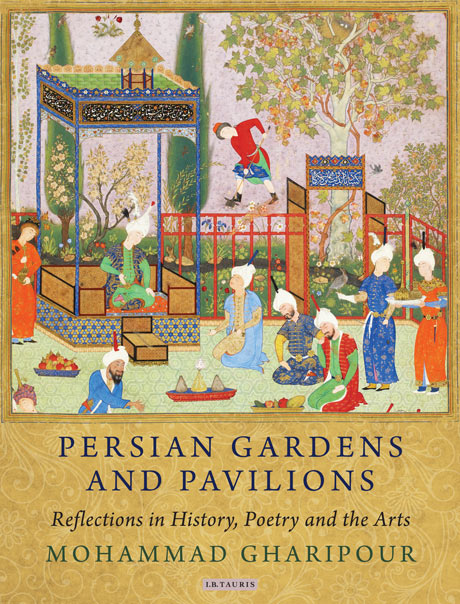 A grant from Roshan Cultural Heritage Institute supported a major publication by Dr. Mohammad Gharipour, Professor in the School of Architecture and Planning at Morgan State University in Baltimore. Persian Gardens and Pavilions: Reflections in History, Poetry and the Arts (I. B. Tauris, 2013) reaches back through Persia’s rich history to explore the material and psychological relationships between human beings, pavilions and gardens, and will be a valuable resource for Art History, Architecture and Iranian Studies. Dr. Gharipour is a specialist of Islamic architecture and is currently Associate Professor at Morgan State University. In February 2016, he was selected by Diverse: Issues in Higher Education magazine as one of twelve minority scholars who are making their mark in academia.
A grant from Roshan Cultural Heritage Institute supported a major publication by Dr. Mohammad Gharipour, Professor in the School of Architecture and Planning at Morgan State University in Baltimore. Persian Gardens and Pavilions: Reflections in History, Poetry and the Arts (I. B. Tauris, 2013) reaches back through Persia’s rich history to explore the material and psychological relationships between human beings, pavilions and gardens, and will be a valuable resource for Art History, Architecture and Iranian Studies. Dr. Gharipour is a specialist of Islamic architecture and is currently Associate Professor at Morgan State University. In February 2016, he was selected by Diverse: Issues in Higher Education magazine as one of twelve minority scholars who are making their mark in academia.

In 2015, Roshan Cultural Heritage Institute established Roshan Institute Professorship in Persian Studies in the Department of Asian Studies. This endowment marks the first Persian Studies endowed professorship at UNC.
In 2013, Roshan Cultural Heritage Institute established Roshan Institute Fellowship for Excellence in Persian Studies at the University of North Carolina at Chapel Hill (UNC). Admissions recruitment fellowships are awarded to support talented graduate students applying to a doctoral program at UNC whose research focuses on Persian Studies. Roshan Institute Fellowships for Excellence in Persian Studies also support current UNC graduate students through summer research awards for travel, reproduction of archival materials, purchasing research-related materials, and other miscellaneous expenses related to graduate student research.
UNC’s Persian Studies Program is housed in the Department of Asian Studies of the College of Arts & Sciences. It is guided by the Persian Studies Faculty Committee, which is chaired by Dr. Carl Ernst, William R. Kenan Jr., Distinguished Professor of Religious Studies and a scholar of Islamic studies, premodern and contemporary Sufism, and Indo-Muslim culture. The Program’s course offerings include Persian language, Iranian culture and cinema, and Sufism, among others. A multitude of Persian cultural events, lectures, film festivals and academic conferences regularly take place at UNC.
In July 2016, Dr. Claudia Yaghoobi was selected as the inaugural Roshan Institute Assistant Professor in Persian Studies. She received her Ph.D. in Comparative Literature with an emphasis in Feminist Studies from the University of California, Santa Barbara, and was previously Assistant Professor of International Literature at Georgia College and State University. Dr. Yaghoobi teaches Persian language and culture courses and also is the UNC Persian Studies Program Coordinator. Dr. Yaghoobi was promoted to Roshan Institute Associate Professor in Persian Studies in 2020.
Starting Fall 2016 semester, students may minor in Persian. Established in the Department of Asian Studies, the undergraduate Minor in Persian consists of four courses, including three Persian language courses and one course chosen among a wide selection of Persian-related culture, history and literature courses.
Roshan Cultural Heritage Institute supported the 2016-2017 Persian Arts Series presented by the Carolina Performing Arts (CPA), in collaboration with UNC’s Persian Studies Program. The series featured two successful performances at Memorial Hall, CPA’s main venue located in the center of UNC campus. On October 28, 2016, avant-garde Iranian composer and vocalist, Sussan Deyhim, performed her acclaimed adaptation of the documentary short film, The House is Black, directed by the legendary Iranian poet, Forough Farrokhzad. Nearly 700 attended the performance. On February 10, 2017, two American giants of avant-garde music, Philip Glass and Laurie Anderson, performed Words and Music in Two Parts, with the Philip Glass Ensemble. Attended by nearly 1,300 people, the performance featured a libretto inspired by the poetry of 13th-century Sufi poet Rumi.
Roshan Institute Fellowship for Excellence in Persian Studies recipients to date are:
| Year | Name | Area of Study / Dissertation Title | |
| 2019-2020 | John Miller | Ph.D. in Religious Studies | |
| 2019-2020 | Arpan Bhandari |
Ph.D. in Religious Studies | |
| 2019 (Summer) | Ehsan Sheikholharam | Research at MIT | |
| 2019 (Summer) | Nurlan Kabdylkhak | Persian Summer Course | |
| 2018-2019 | Yusuf Sezgin | Ph.D. in History | |
| 2017-2018 | Ehsan Sheikholharam | Ph.D. in Religious Studies | |
| 2017 (Summer) | Patrick D’Silva | Research at the British Library | |
| 2016 (Summer) | Candace Mixon | Dissertation research at the University of Chicago’s Middle Eastern collections | |
| 2015-2016 | Christopher Smith | Ph.D. in Religious Studies | |
| 2015 (Summer) | Patrick D’Silva | “Investigating Yogic and Sufi Exchange in the 18th and 19th Centuries” | |
| 2015 (Summer) | Candace Mixon | Travel to International Conference in Iran | |
| 2015 (Summer) | Lyla Halsted | Architectural Monuments in Iran | |
| 2015 (Summer) | Jacob Hill | Association of Baha’i Studies Conference | |
| 2014 (Summer) | Candace Mixon | “Representations of Public Piety in Persian Images and Texts” |
 In January 2010, Dr. Mohammad Gharipour, Visiting Assistant Professor in the School of Architecture at the University of North Carolina at Charlotte, was awarded a grant for the publication of Persian Gardens and Pavilions: Reflections in History, Poetry and the Arts (I. B. Tauris, 2013). In this book, Dr. Gharipour places both the garden and the pavilion within their historical, literary and artistic contexts, emphasizing the importance of the pavilion, so overlooked in the study of Iranian historical architecture. He does so by examining the representations of gardens and pavilions in religious texts, the poetry of major Persian poets, miniature painting, sculpture and carpets, as well as accounts of travelers to Persia. He thereby highlights the spiritual, symbolic and religious aspects of gardens, as well as their more social and economic functions, reflecting patterns of patronage and ownership. Since 2011, Dr. Gharipour teaches in the School of Architecture and Planning at Morgan State University in Baltimore.
In January 2010, Dr. Mohammad Gharipour, Visiting Assistant Professor in the School of Architecture at the University of North Carolina at Charlotte, was awarded a grant for the publication of Persian Gardens and Pavilions: Reflections in History, Poetry and the Arts (I. B. Tauris, 2013). In this book, Dr. Gharipour places both the garden and the pavilion within their historical, literary and artistic contexts, emphasizing the importance of the pavilion, so overlooked in the study of Iranian historical architecture. He does so by examining the representations of gardens and pavilions in religious texts, the poetry of major Persian poets, miniature painting, sculpture and carpets, as well as accounts of travelers to Persia. He thereby highlights the spiritual, symbolic and religious aspects of gardens, as well as their more social and economic functions, reflecting patterns of patronage and ownership. Since 2011, Dr. Gharipour teaches in the School of Architecture and Planning at Morgan State University in Baltimore.

A Roshan Cultural Heritage Institute grant was awarded to Northeastern University to support Asal Baragchizadeh toward her Master of Public Administration degree in Political Science in 2010-2011. Ms. Baragchizadeh was a 2009 Roshan Institute Fellow at the East-West Center at the University of Hawaii. She holds a B.A. in Biomedical Engineering from Islamic Azad University in Tehran and is currently a graduate student in Applied Cognition and Neuroscience at the University of Texas at Dallas.

Roshan Cultural Heritage Institute awarded a three-year Elahé Omidyar Mir-Djalali Research Fellowship (2018-2021) to Dr. Stephanie Cronin in support of a new project entitled Modern Iran: A Transformational History and the establishment of a new Elahé Omidyar Mir-Djalali Lecture Series as well as a new book series on historical studies of Iran and the Persian world at Edinburgh University Press.
Dr. Stephanie Cronin received a three-year Roshan Institute Visiting Research Fellowship (2015-2018) in support of teaching in modern Iranian history, organizing an international conference, and conducting a research for her forthcoming book, Iran: a People’s History. The conference, “The ‘Dangerous Classes’ in the Middle East and North Africa” was successfully held on January 26, 2017, at St Antony’s College, with ten speakers and more than 100 in attendance. Papers from the conference will be published in a book by I.B. Tauris.
In 2014, Roshan Cultural Heritage Institute awarded a fellowship to Dr. Homa Katouzian, Member of the Faculty of Oriental Studies and Iran Heritage Foundation Fellow of St. Antony’s College at the University of Oxford, in support of the publication of Sa’di in Love, The Lyrical Verses of Persia’s Master Poet (I.B. Tauris, 2016). Dr. Katouzian is a specialist in Persian literature and has already published three books on Sa’di, in Persian and English.
Dr. Stephanie Cronin, Departmental Lecturer in Persian Studies at the Faculty of Oriental Studies, received a fellowship in 2012 from Roshan Cultural Heritage Institute in support of a major scholarly workshop on “Russian Orientalism to Soviet Iranology: The Persian-Speaking World and its History through Russian Eyes” and the publication of its papers in a special issue of Iranian Studies. The conference took place on November 30 – December 1, 2012 at St. Antony’s College (University of Oxford) and attracted participants from the U.S., U.K., Europe, Russia and Central Asia. The workshop opened up new perspectives for scholarship on the history of the Persian-speaking world. Co-edited by Dr. Cronin and Professor Edmund Herzig, with the general editorship of Dr. Homa Katouzian, the special issue of Iranian Studies was published in August 2015.
In 2005, Roshan Cultural Heritage Institute sponsored “Private Lives and Public Spaces in Modern Iran” held at St. Antony’s College on July 7-10, 2005. Chaired by Dr. Mohamad Tavakoli-Targhi (University of Toronto), this conference was organized by the Faculty of Oriental Institute and St. Antony’s College (University of Oxford) and by the Iran Heritage Foundation. The purpose of the conference was to address new scholarship on the themes of historization of personhood, the family, modes of intimacy and friendship in modern Iran.
In 2004, Roshan Cultural Heritage Institute partnered once again with the Faculty of Oriental Studies and St. Antony’s College (University of Oxford) and Iran Heritage Foundation for the presentation of “Historiography and Political Culture in Twentieth-Century Iran.” The conference took place at Wadham College (University of Oxford) on September 17-18, 2004, and considered modern Iranian historiography in the areas of political, economic and social culture. Professor Touraj Atabaki chaired the event which brought together a number of renowned scholars of modern Iran.
Roshan Cultural Heritage Institute supported the Sadeq Hedayat Centenary Conference, organized by the Faculty of Oriental Studies and St. Antony’s College (University of Oxford) and by the Iran Heritage Foundation on March 28-29, 2003. This conference celebrated the 100th anniversary of Persian author Sadeq Hedayat’s birth by uniting eminent scholars of Persian literature from the U.S., Europe and Iran. The event was chaired by Dr. Homa Katouzian and took place at the Middle East Centre, St. Antony’s College.
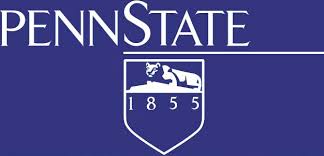
In 2006, Roshan Cultural Heritage Institute awarded a fellowship grant to Pennsylvania State University for Dr. Susan Strauss, Associate Professor of Applied Linguistics, to conduct a two-year project, entitled “Persian Language and Culture for Intermediate and Advance Level Study.” Dr. Strauss’ areas of research focus on the discourse, interaction, conceptualization, and grammar in several languages including Korean, Japanese, American English, Chinese and Persian.
In 2006, Roshan Cultural Heritage Institute also provided Penn State a Roshan Institute Fellowship for Excellence in Persian Studies for Ph.D. candidate Parastou Feiz, for her dissertation, entitled “The Expression and Conceptualization of Motion through Space and Manner of Motion in Persian and in English: A Comparative Analysis,” in the Department of Applied Linguistics. Dr. Feiz completed her degree in 2007, and since has been teaching Applied Linguistics and TESL in the Department of English at California State University, San Bernardino.
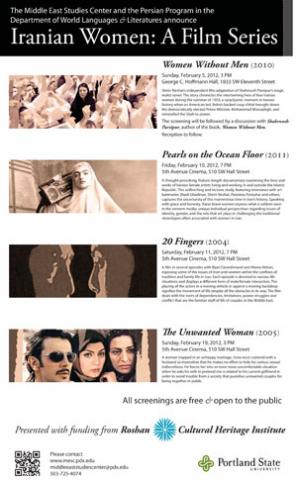 In 2010, a grant was made to Portland State University by Roshan Cultural Heritage Institute to support the development of a first-year Persian language textbook and the “Iranian Women: A Film Series” held on February 5-19, 2012. The Film Series included the screening of Shirin Neshat‘s “Women Without Men,” the documentary “Pearls on the Ocean Floor,” “20 Fingers,” and “The Unwanted Woman.” These initiatives were led by Dr. Anousha Sedighi, Associate Professor of Persian in the Department of Foreign Languages and Literatures, whose areas of research are Persian linguistics, Persian language pedagogy, and Persian as a heritage language.
In 2010, a grant was made to Portland State University by Roshan Cultural Heritage Institute to support the development of a first-year Persian language textbook and the “Iranian Women: A Film Series” held on February 5-19, 2012. The Film Series included the screening of Shirin Neshat‘s “Women Without Men,” the documentary “Pearls on the Ocean Floor,” “20 Fingers,” and “The Unwanted Woman.” These initiatives were led by Dr. Anousha Sedighi, Associate Professor of Persian in the Department of Foreign Languages and Literatures, whose areas of research are Persian linguistics, Persian language pedagogy, and Persian as a heritage language.
Dr. Sedighi was appointed to the rank of Full Professor of Persian in fall 2017. She is the first full professor in Persian Studies in the country whose main research and scholarship focus on Persian language pedagogy.

Roshan Cultural Heritage Institute awarded a grant to the University of San Diego to support Azadeh Davari‘s work in the M.A. program in Nonprofit Leadership and Management in 2013-2014. The program offers an integrated course of study that melds state-of-the-art leadership theory with proven management models, strategies and tools designed to teach professionals how to create and manage high-performance organizations. Dr. Davari is a former Roshan Institute Fellow who participated in the Asia Pacific Leadership Program at the East-West Center in 2010. She completed her Ph.D. in Leadership Studies at the University of San Diego in May 2018.
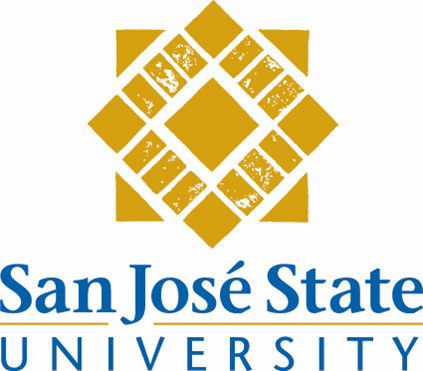
A major grant from Roshan Cultural Heritage Institute supported a three-year pilot Persian Studies Program (2013-2016) at San José State University. Its goals and vision was to draw on the intellectual and cultural resources of SJSU and the Silicon Valley community to offer an interdisciplinary approach to understanding Iran, Persian culture and language, and to move beyond the boundaries of Iran to include an appreciation and study of other Persian-speaking communities, including those of the Iranian Diaspora. Among the initiatives supported by this grant were research projects by SJSU faculty, Graduate Fellowships, Undergraduate Scholarships and Assistantships, and Roshan Institute Lecture Series and Cultural Events.
The Persian Studies Program is directed by Dr. Shahin Gerami, Professor of Women’s Studies. Professor Gerami‘s research and activism has involved various aspects of gendered disparity ranging from displaced population, religious mandated sexism, and political profiling of Muslim men. She is currently conducting a survey of Iranian Americans and attitudes toward Iran and co-directing “Iranian-American Voices in Silicon Valley: Evolution of a Community.”
In 2014, Roshan Cultural Heritage Institute also supported the organization of Roshan Institute Lecture Series on “The Book of Kings” by Iraj Tabibnia at San José State University. Mr. Tabibnia is a scholar of Persian history and literature, and the author of “The Story of the Compact of Rostam and Sohrab.” Between September and December, ten sessions in Persian (with summary translation in English) explored Iran’s national epic written by Persian poet Ferdowsi.
Roshan Institute Fellowship for Excellence in Persian Studies recipients include:
| Year | Name | Area of Study / Dissertation Title |
| 2016 (Fall) | Sogand Shekarian | Development in structural engineering in Iran |
| 2016 (Fall) | Roya Ebtehaj | Digital media arts in Iran |
| 2016 (Spring) | Baharak Khalegi | Iranian immigrant artists in the San Francisco Bay Area |
| 2016 (Spring) | Volga Solak | Art and Art History |
| 2016 (Spring) | Susan Areeckal | Iranian history and its influence in the Indian subcontinent |
| 2015 (Spring) | Rashel Pakbaz | Assyrian composers and their musical influence in Iran and Iraq |
| 2015 (Spring) | Baharak Khalegi | Self-Representation of Iranian Women in Photography |
| 2015 (Spring) | Arash Davari | Revolutionary Reconstruction |
| 2015 (Spring) | Sadegh Foghani | Diaspora Iranian Engineers in the US |
| 2014 (Fall) | Sarah Aghazadeh | US policy and diplomacy toward Iran under the Obama administration |
| 2014 (Fall) | Saba Jalali | Translation project |
| 2013 (Fall) | Hamed Sorourifar | |
| 2013 (Fall) | Manijeh Moradian | Iranian Americans and the history of student involvement between 1953-2013 |
Roshan Institute Scholarship for Excellence in Persian Studies recipients include:
| Year | Name | Area of Study |
| 2016 (Fall) | Sara Manteghi | |
| 2015 (Fall) | Juliette Billy | Liberal Studies |
| 2015 (Fall) | Jihun Lyu | Engineering |
| 2015 (Fall) | Raeti Fouladi Chami | Humanities |
| 2015 (Fall) | Nazanin Nader | |
| 2015 (Spring) | Michelle Belmessieri | Persian language and culture |
| 2015 (Spring) | Jahan Vijeh | |
| 2014 (Fall) | Effatina Boutros | |
| 2014 (Fall) | Mateen Banejad | |
| 2014 (Fall) | Kamorie Smith | |
| 2013-2014 | Khaled Ali | Social Work |
| 2013-2014 | Christopher Suard | English & Comparative Literature |
| 2013-2014 | Michelle Belmessieri-Hogg | World Languages |
| 2013 (Spring) | Layla Forooghi | Religious Studies and Humanities |
Roshan Institute Assistantship recipients include:
| Year | Name | Area of Study |
| 2015-2016 | Saba Jalali | |
| 2015-2016 | Meytra Brahman | |
| 2015-2016 | Baharak Khalegi |
|
| 2013-2014 | Schehrbano Khan |
|
| 2013-2014 | Ume Naqvi | |
| 2013-2014 | Ritu Srivastava | |
| 2013 (Spring) | Angela Ivanov |
Roshan Institute Lectures and events organized by the Persian Studies Program include:
2016
- Film screening: “Home and Yet Far Away” with writer and filmmaker, Sabareh Kashi
- Lecture “The Iranian Constitutional Revolution and the Clerical Leadership of Khurrasani” by Dr. Mateo Farzaneh, Northeastern University
- World premiere of “Together Tea,” a staged adaptation of Marjan Kamali‘s acclaimed novel
- Conference “Engaging Iran and the Iranian Diaspora after the Nuclear Agreement: Opportunities and Challenges”
- “Engaging Iran after the Nuclear Agreement,” a keynote public address by Dr. Juan Cole, University of Michigan
- Lecture “Riza-yi ‘Abbasi and the Art of Sixteenth Century Persia” by Naciem Nikkhah, Ph.D. candidate, Cambridge University
- Film screening: “A Woman Walks Home Alone at Night,” directed by Ana Lily Amirpour
- “Stories Make a Home,” reading from Siamak Vossoughi, author, Better Than War
- Lecture “Producing Culture and Citizenship in the Iranian Diaspora” by Dr. Amy Malik, Scripps College
- Lecture “Impact of teh P5 + 1 agreement on US-Iran Relations” by Dr. Dariush Zahedi, UC Berkeley
- Annual “Norouz: Persian New Year” Concert with Saba Ensemble
2015
- Film screening: “Fifi Howls from Happiness,” a documentary about Iranian artist, Bahman Mohassas, and discussion with film producer Marjaneh Moghimi
- Poetry reading with Iranian-American poet Soraya Shalforoosh
- Lecture “A Return to Which Self? Ali Shari’ati and the Articulation of an Indeterminate Collective Subject in Revolutionary Iran” by Arash Davari, Ph.D. candidate, UCLA, Political Science
- Lecture “Retelling the Story on the 1953 CIA Coup in Iran in Graphic Form” by Graphic Illustrator and Co-Author of Operation Ajax, Daniel Burwen
- Film screening: “Into the Sea” written and directed by Marion Poizeau
- Exhibit “Through Different Eyes” as part of the “The Reflective Eye/I: A Collaboration of Photography Students in Iran and the US” project
- Lecture “Re-Visioning Sohrab Sepehri and other Adventures in Poetic Translation” by Professor Kazim Ali
- Lecture “A Matter of Perspective” by Professor Fereshteh Dianat
- Annual Norouz Concert with Iranian-American vocalist Azadeh Farpour and the Mehr Avaa Ensemble (Andisheh Jahandin, Kamran Modiriam, Omid Sadravi)
2014
- Performance “Off the Curtain: The Tragedy of Rostam and Sohrab” by Sara Mashayekh
- Lecture “East-West Cultural Transmissions in Post Mongol Iran” by Dr. Ladan Akbarnia (British Museum/IHF)
- Lecture “Persian Miniature Painting and the Shahnameh” by Dr. Johanna Movassat (SJSU)
- Lecture “Iran: A Smartphone Photographer’s Perspective” by Omid Scheybani
- Lecture Series on “The Book of Kings” by Iraj Tabibnia
- “The Elements,” an exhibit of paintings by Mehri Yazdani
- Lecture “US-Iran Relations at the Six-Month Mark: Prospects for Long-Term Diplomacy and a Negotiated Agreement” by Professor Muhammad Sahimi (USC)
- “Filmmaking in the Diaspora,” a screening and discussion with Mohammad Gorjestani and Babak Sarrafan
- Premiere of the play “Inja O Oonja. Here and There: Stories of Iranian-American Life” adapted and directed by Professor Matthew Spangler (SJSU)
- Two-day conference “Cultures of the Iranian Diaspora”
- Lecture “Shaping and Making a Future: Iranian American Business and Technology Leaders in Silicon Valley” by Dr. Kathrine Richardson (SJSU)
- “Welcome Spring: Norouz,” a concert of classical and folk Persian music with Mahvash Guerami, Hossein Massoudi and Bay area Iranian American Children’s Choral Group
- “Days of Revolution: Political Protest in an Iranian Village,” reading and discussion with Dr. Mary Elaine Hegland (Santa Clara University)
- Lecture “Jews of Iran” by Dr. Jaleh Pirnazar (UC Berkeley)
2013
- The Inner is True, The Rest is Chance,” a discussion of the Persian Mystic Fariduddin Attar’s “Conference of the Birds” with poet Sholeh Wolpé
- “Changing the National Conversation on the Middle East, One Play at a Time” by Torange Yeghiazarian
- Reading of “Love and Pomegranates: Artists and Wayfarers on Iran”
- “The Cat and the Coup” by Kurosh ValaNejad (USC) and Professor George Vasquez (SJSU)
- Lecture “Cyrus the Great & Achaemenid Persia in World History” by Professor John Lee (University of California, Santa Barbara)
- Lecture “Iran’s Upcoming Election & the Nuclear Dispute” by Professor Dariush Zahedi (University of California, Berkeley)
- Reading of “Tremors: New Fiction by Iranian American Writers”
- Lecture “Iranian Women Occupying Facebook: Identity and Resistance” by Professor Shahin Gerami (SJSU)
- “Welcome Spring: A Concert of Classical and Folk Persian Music To Celebrate Norouz and the Arrival of Spring” with Mahvash Guerami and Hossein Massoudi
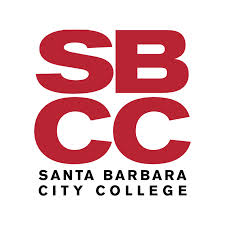
Dr. Manoutchehr M. Eskandari-Qajar is Chair of Political Science/Economics and Director of Middle East Studies at Santa Barbara City College, and President and Founder of the International Qajar Studies Association (IQSA). In 2014, Roshan Cultural Heritage Institute awarded a grant in support of the Fourteenth IQSA Conference held on May 30-31 at the Iranistik Institute of the Otto-Friedrich University in Bamberg, Germany, and the publication of the 2014-2015 IQSA Journal. Professor Eskandari-Qajar was one of the keynote speakers of the Fourteenth IQSA conference whose theme focused on “Literature and Writing in Qajar Iran.”

In 2018, Roshan Cultural Heritage Institute approved a grant to Stony Brook University to conduct a Three-Year Research on Endangered Iranian Languages, with a focus on Caspian languages. The grant includes funding for a three-year Elahé Omidyar Mir-Djalali Postdoctoral Fellowship in Endangered Iranian Languages to conduct research under the supervision of Professor Richard Larson, past-Chair of the Department of Linguistics at Stony Brook University. Following an international search, Dr. Neda Taherkhani was selected as the Elahé Omidyar Mir-Djalali Postdoctoral Fellow to conduct the research from Fall 2019 thru Spring 2022. Dr. Taherkhani has a Ph.D. in Linguistics from Purdue University, with a specialization in Southern Tati, a language of Iran classified as endangered by UNESCO.
In 2016, Roshan Cultural Heritage Institute awarded a grant to Stony Brook University to host the first North American Conference in Iranian Linguistics (NACIL 1) on April 27-30, 2017. NACIL 1 was organized and led by Professor Richard Larson, Chair of the Department of Linguistics at Stony Brook University. Professor Larson has a long-standing research interest in the languages of the Iranian family and on their implications for linguistic theory. NACIL 1 was successful held and attracted scholars from all over the world, as expected. A publication of the conference papers is planned by the end of 2018.
Roshan Cultural Heritage Institute provided a grant to Stony Brook University to award a Roshan Institute Fellowship for Excellence in Persian Studies to Vahideh Rasekhi, Ph.D. student in the Department of Linguistics, for the completion of her dissertation, entitled “Ellipsis and Information Structure: Evidence from Persian,” during academic year 2016-2017. Dr. Rasekhi successfully defended her doctoral dissertation in August 2018 and will continue her research in the syntax of Iranian languages at UCLA Linguistics Department, where she has been awarded the first Elahé Omidyar Mir-Djalali Postdoctoral Fellowship in Iranian Linguistics for 2018-2020.

In 2014, Dr. Mehrzad Boroujerdi, O’Hanley Professor of Political Science at Syracuse University, and 2014 President of the International Society for Iranian Studies (now known as the Association for Iranian Studies) was supported by Roshan Cultural Heritage Institute for the organization of the Tenth Biennial Iranian Studies Conference, on August 6-9, 2014, in Montreal, Canada. This major event brought together hundreds of scholars and students of Iranian Studies for presentations, panel discussions, receptions and other activities. The conference was hosted by the Centre for Iranian Studies at Concordia University and the Institute of Islamic Studies at McGill University in Canada.

Roshan Cultural Heritage Institute provided major funds to advance Iranian Studies at the University of Toronto and to establish the Elahé Omidyar Mir-Djalali Institute of Iranian Studies. Major elements of this endowment include: Elahé Omidyar Mir-Djalali Postdoctoral Fellowship, Elahé Omidyar Mir-Djalali Lecture Series, Elahé Omidyar Mir-Djalali Dissertation Fellowship, Elahé Omidyar Mir-Djalali Graduate Scholarships and Elahé Omidyar Mir-Djalali Scholar Award.
Elahé Omidyar Mir-Djalali Institute of Iranian Studies at the University of Toronto will focus primarily on research and outreach by leveraging the strong educational programming already in place across the university, fostering advanced research in a collaborative community, and promoting intercultural dialogue. The Institute will be located at 90 Queen’s Park, a state-of-the-art research and teaching facility adjacent to the Royal Ontario Museum that is currently under construction at U of T. In this new stunning building, U of T scholars—more than 18 leaders in the field of Iranian Studies—will work alongside those from the School of Cities, the Faculty of Music, the Institute of Islamic Studies and the departments of History and Near and Middle Eastern Civilizations.
In 2019, Roshan Cultural Heritage Institute awarded a grant to Dr. Arsalan Kahnemuyipour, Associate Professor of Linguistics, in support of his project, “The Syntax of Nominal Linkers in Iranian Languages.” The grant includes funding for a two-year Elahé Omidyar Mir-Djalali Postdoctoral Fellowship in Iranian Linguistics. Following an international search, the postdoctoral fellowship was awarded to Dr. Songul Gundogdu Yucel, who started conducting the research in Fall 2019.
In 2016, Roshan Cultural Heritage Institute awarded a fellowship to Sepideh Raissadat for her musical project, “Rameshgari: Reviving the Art of Tasnif-composing“, under the supervision of Professor Mohamad Tavakoli-Targhi. A Persian classical vocalist and musician who recorded her first album when she was 18, Ms. Raissadat is currently pursuing a Ph.D. in Ethnomusicology at the University of Toronto.
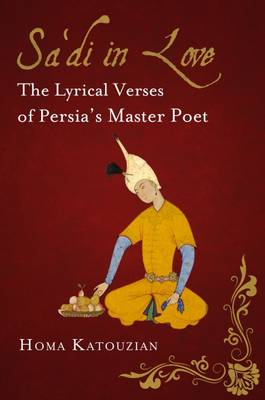 In 2014, Roshan Cultural Heritage Institute provided a grant to the Toronto Initiative in Iranian Studies, directed by Professor Mohamad Tavakoli-Targhi, to award a fellowship for Dr. Homa Katouzian, member of the Faculty of Oriental Studies and Iran Heritage Foundation Fellow of St. Antony’s College at the University of Oxford. The grant supported the publication of Sa’di in Love, Lyrical Verses of Persia’s Master Poet (I.B. Taurus, 2016) by Dr. Katouzian.
In 2014, Roshan Cultural Heritage Institute provided a grant to the Toronto Initiative in Iranian Studies, directed by Professor Mohamad Tavakoli-Targhi, to award a fellowship for Dr. Homa Katouzian, member of the Faculty of Oriental Studies and Iran Heritage Foundation Fellow of St. Antony’s College at the University of Oxford. The grant supported the publication of Sa’di in Love, Lyrical Verses of Persia’s Master Poet (I.B. Taurus, 2016) by Dr. Katouzian.
Roshan Cultural Heritage Institute awarded a grant to the University of Toronto in 2012, in support of Golbarg Rekabtalaei‘s doctoral dissertation, entitled “Cinematic Modernity: Cosmopolitan Reel Imagination in Twentieth-Century Iran”. She successfully completed her doctoral studies in 2015 and was a Postdoctoral Teaching Scholar at North Carolina State University from 2015 to 2017. Dr. Rekabtalaei currently is Assistant Professor in the Department of History at Seton Hall University, where she also is the Co-Director of the Middle Eastern Studies Program.
In 2011, Ida Meftahi received a Roshan Institute Fellowship for Excellence in Persian Studies toward the completion of her Ph.D. dissertation, entitled “The Biopolitics of Dance in Twentieth-Century Iran.” She successfully obtained her degree in Near and Middle Eastern Civilizations from the University of Toronto in summer 2013 and was a Postdoctoral Fellow at the Institute for the Arts and Humanities of Pennsylvania State University in 2013-2014. Dr. Meftahi also was a Visiting Assistant Professor at Roshan Institute for Persian Studies of the University of Maryland College Park from 2014 to 2019.
In 2010, Roshan Cultural Heritage Institute supported Dr. Mohamad Tavakoli-Targhi, Associate Professor at the University of Toronto and 2010 President of the International Society for Iranian Studies (now known as the Association for Iranian Studies), for the organization of the Eighth Biennial Iranian Studies Conference on May 27-30, 2010. The major event brought together 250 scholars on the subjects of Persian language, literature and culture, and Iranian Diaspora.
Roshan Cultural Heritage Institute provided a fellowship to the University of Toronto to support Ph.D. candidate, Chad Lingwood, in 2006-2007. He completed his dissertation, entitled “Jami’s Salaman va Absal: A 15th Century Mystical Mirror for Princes in the Aq Qoyunlu Context,” and received his degree in 2009. Dr. Lingwood is currently Assistant Professor of History at Grand Valley State University and recently published his Ph.D. work as a book-length monograph under the title, “Politics, Poetry, and Sufism in Medieval Iran: New Perspectives on Jami’s Salaman va Absal” (Brill Academic Publisher, 2014).
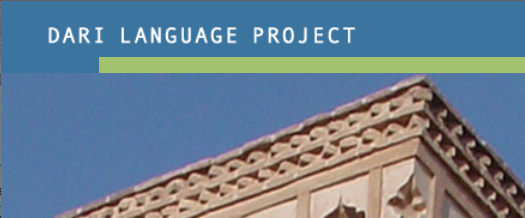 Roshan Cultural Heritage Institute provided funding to University of Virginia for Linguistics students, Annahita Farudi and Maziar Toosarvandani, in support of the Dari Language Project developed in 2003. The primary goals of the Dari Language Project were to contribute to the preservation and perpetuation of Dari; fund and organize linguistic research, primarily on-site linguistic fieldwork; and disseminate the findings in both public and academic venues. The project, which has since launched a Web site and the construction of an online dictionary, has received attention from online Iranian culture and linguistics resources, and has been acknowledged by authors of published works. Both students have also published papers based on findings from the fieldwork and presented related research by invitation in the US and Europe.
Roshan Cultural Heritage Institute provided funding to University of Virginia for Linguistics students, Annahita Farudi and Maziar Toosarvandani, in support of the Dari Language Project developed in 2003. The primary goals of the Dari Language Project were to contribute to the preservation and perpetuation of Dari; fund and organize linguistic research, primarily on-site linguistic fieldwork; and disseminate the findings in both public and academic venues. The project, which has since launched a Web site and the construction of an online dictionary, has received attention from online Iranian culture and linguistics resources, and has been acknowledged by authors of published works. Both students have also published papers based on findings from the fieldwork and presented related research by invitation in the US and Europe.

Beginning Fall 2022, the Department of Near Eastern Languages and Civilization has a new name: Middle Eastern Languages and Cultures (MELC) (hyperlink underlined to new their new webpage: https://melc.washington.edu). UW has made this change to acknowledge and embrace the diversity of the regions they study, to raise the visibility of the courses and activities offered, and to stay up-to-date with developments in their fields of study.
In 2020, Roshan Cultural Heritage Institute established the Elahé Omidyar Mir-Djalali Professorship in Persian and Iranian Studies at the Department of Near Eastern Languages and Civilization (NELC). This endowment marks the first endowed professorship at NELC and the first professorship dedicated to Persian Studies at UW.
An endowment for Roshan Institute Fellowship for Excellence in Persian Studies was established at the University of Washington in 2003 to provide support to future generations of graduate students in the Persian and Iranian Studies Program and the Department of Near Eastern Languages and Civilizations (NELC) of the College of Arts and Sciences. The Program is currently directed by Dr. Selim Kuru, Chair, NELC, and Associate Professor of Ottoman language and literature and Modern Turkish. It offers elementary to advanced levels of Persian language as well as courses in modern Persian literature, poetry, and civilization, and others.
In Fall 2020, Dr. Aria Fani was selected as the inaugural Elahé Omidyar Mir-Djalali Assistant Professor in Persian and Iranian Studies. He currently also is the co-Director of the Persian and Iranian Studies Program at NELC. Dr. Fani received a Ph.D. degree from the University of California, Berkeley, with his dissertation entitled, “Becoming Literature: The Formation of Adabiyat as a Discipline in Iran and Afghanistan (1895-1945).” His research focuses on the Persian language and cultural heritage as shared medium for modern literary cultures of Iran and Afghanistan, and he has published a textbook for the teaching of Persian as a heritage language. Fani also translates Persian poetry into English and is currently working on a poetry collection by Bizhan Jalali titled Shades of Silence.
In 2015, Roshan Cultural Heritage Institute sponsored the Annual Persian and Iranian Studies Gala, a fundraiser for the Persian and Iranian Studies Program. Proceeds from the fundraiser were used to organize the Conference, “Writing the Iranian Revolution: Memory, Testimony, Time,” held on May 12-13, 2017, at the university.
A Roshan Cultural Heritage Institute grant was awarded to the Persian and Iranian Studies Program at the University of Washington from 2007-2009, in support of the following activities: Roshan Cultural Heritage Institute Lecture Series, Iranian Film Series, conference “Modern Iran: the Future of the Past” and additional lectureship for Persian Studies.
Roshan Institute Fellowship for Excellence in Persian Studies recipients at the University of Washington to date include:
| Year | Name | Area of Study / Dissertation Title |
| 2019-2020 | Melinda Cohoon | Video games and cultural narrative in Tehran |
| 2018-2019 | Maral Sahebjame | Contemporary urban narratives of marriage in Iran |
| 2017-2018 | Maral Sahebjame | Unmarried cohabitation in Iran |
| 2016-2017 | Solmaz Shakerifard | Teaching methods and practices of Iranian traditional music |
| 2015-2016 | Sasha Prevost | Indo-Persian culture of the early modern period |
| 2013-2014 | Jipar Duishembieva | “Central Asian Intellectuals of Semirech’e Oblast of Russian Turkestan, 1905-1924” |
| 2012-2013 | Jennifer Webster |
“Toward a Sacred Topography of Central Asia: Shrines, Pilgrimage, and Gender in Modern Kyrgyzstan and Tajikistan”
|
| 2012-2013 | Stefan Kamola | “Rashid al-Din and the making of history in Mongol Iran” |
| 2011-2012 | Stefan Kamola | Rashid al-Din Tabib al-Hamadani, the thirteenth-century historian of the Mongol Empire |
| 2010-2011 | Murat Inan | Reading Hafez in the Ottoman Empire: The Study and Interpretation of Classical Persian Literary Culture in Early Modern Ottoman Commentaries on Hafez of Shiraz |
| 2009-2010 | James Gustafson | Intellectual history of Qajar Iran |
| 2008-2009 | Kristian Petersen | The transmission of and migration of Islamic knowledge from the Islamic heartlands to periphery areas with a specific emphasis on Islam in China |
| 2006-2007 | Shuli Chen | “Third World Film-making and the City: Spatiality in Contemporary Iran, Taiwanese, and Mexican Urban Films” |
| 2003-2004 | Sima Daad | “Textual Theories and Qazvini’s Editing Methodology” |

A grant was awarded to Washington University in St. Louis to provide a Roshan Institute Fellowship for Excellence in Persian Studies in 2012-2013 to Matthew Thomas Miller in support of his Ph.D. work on the 13th-century Sufi poet Fakhr al-Din ‘Eraqi. Dr. Miller completed his Ph.D. in Comparative Literature in 2016 and is currently Assistant Professor of Persian Literature and Digital Humanities at the University of Maryland, College Park, where he also serves as the Associate Director of the Roshan Initiative in Persian Digital Humanities (PersDig@UMD).

Roshan Cultural Heritage Institute provided a grant to Yale University in academic year 2014-2015, in support of Assef Ashraf, while he was completed his doctoral dissertation on “From Khan to Shah: Political Culture, State Formation, and Patronage in Qajar Iran, 1785-1834” in the Department of History. Dr. Ashraf received his Ph.D. in 2016 and is currently Lecturer in Eastern Islamic Lands and the Persian-speaking World in the Faculty of Asian and Middle Eastern Studies at the University of Cambridge, UK.

